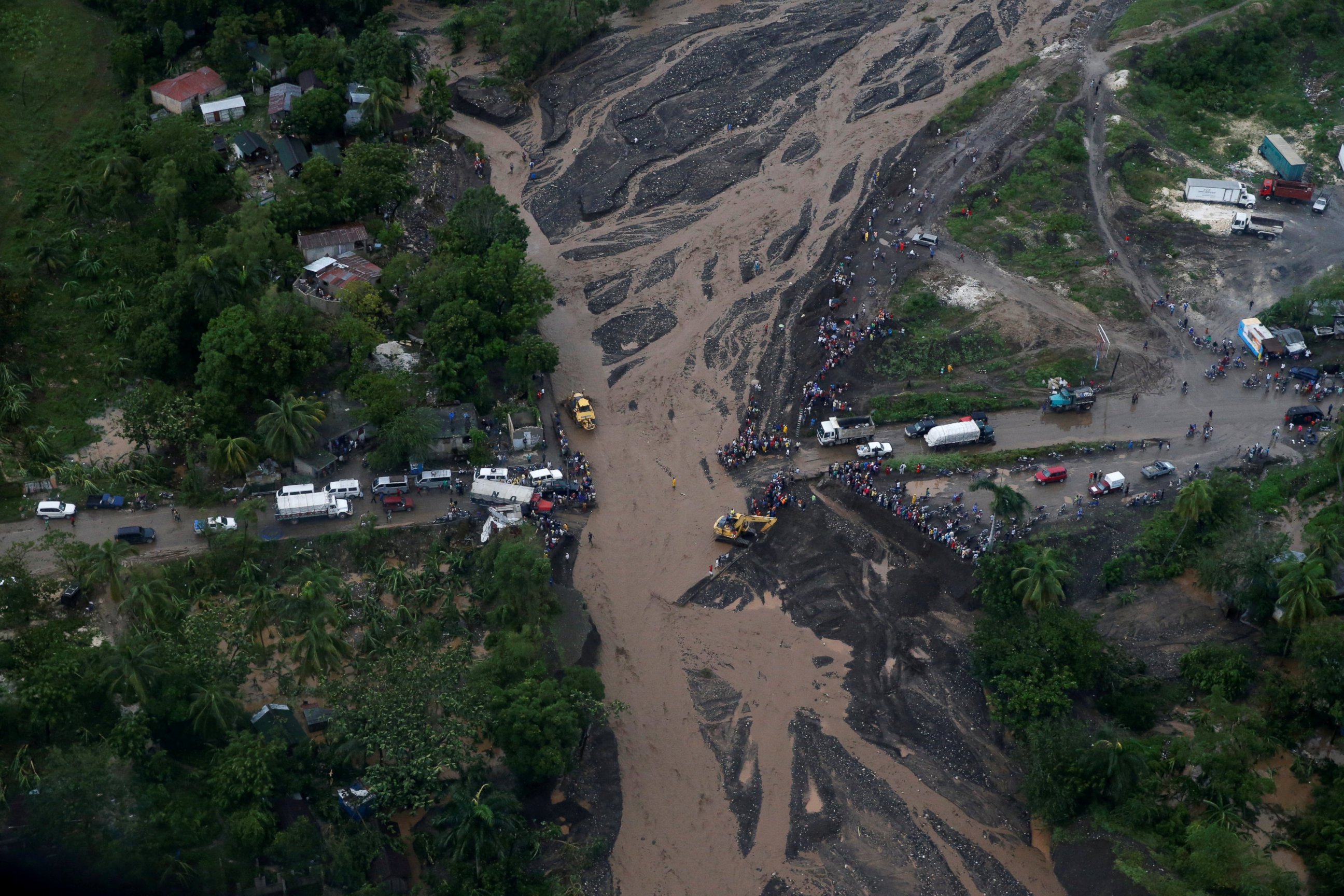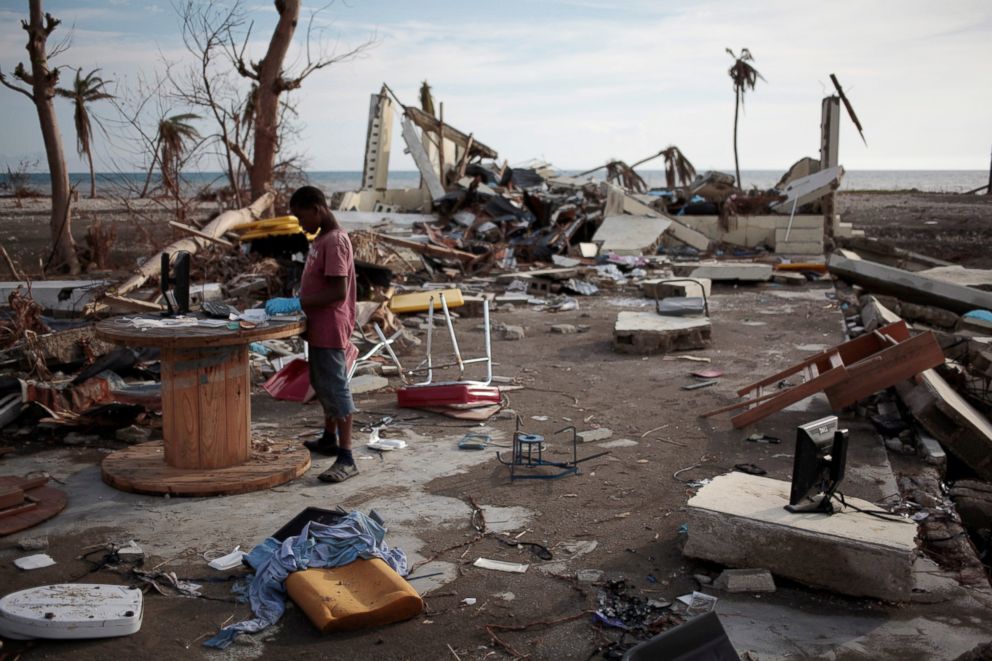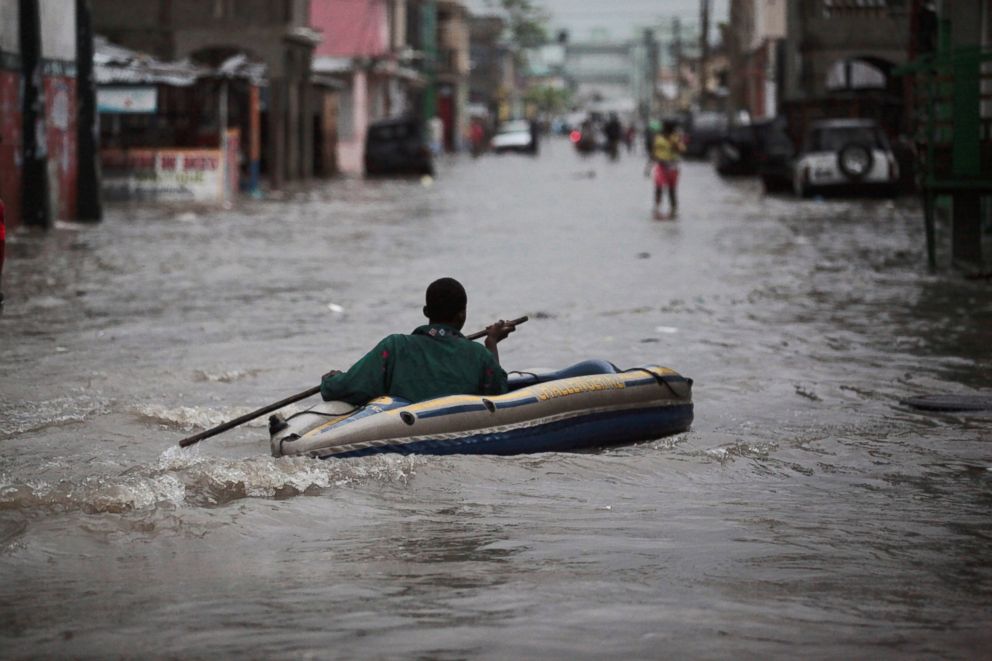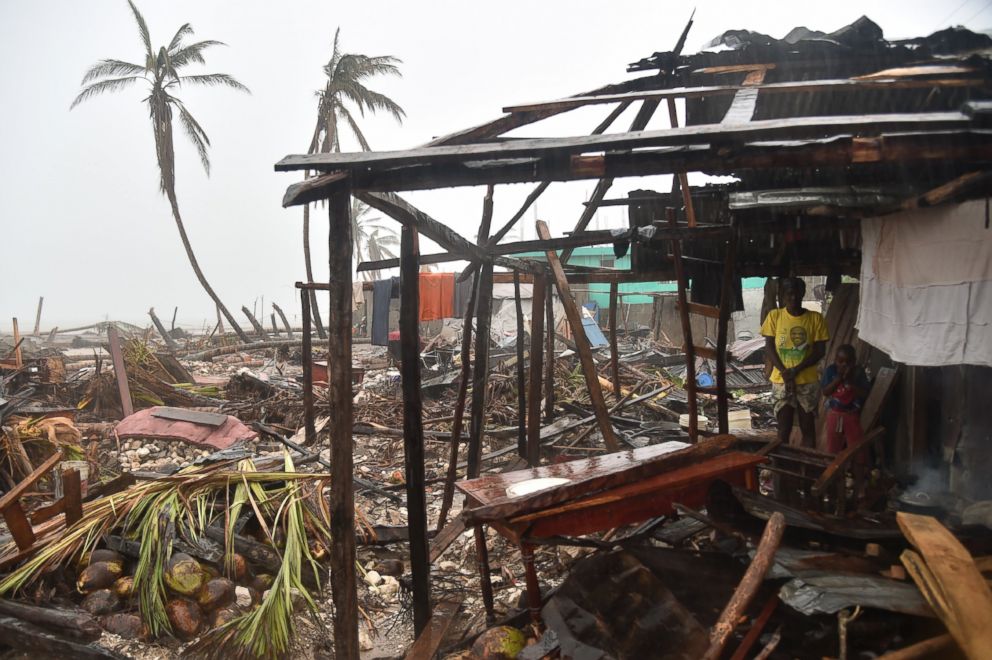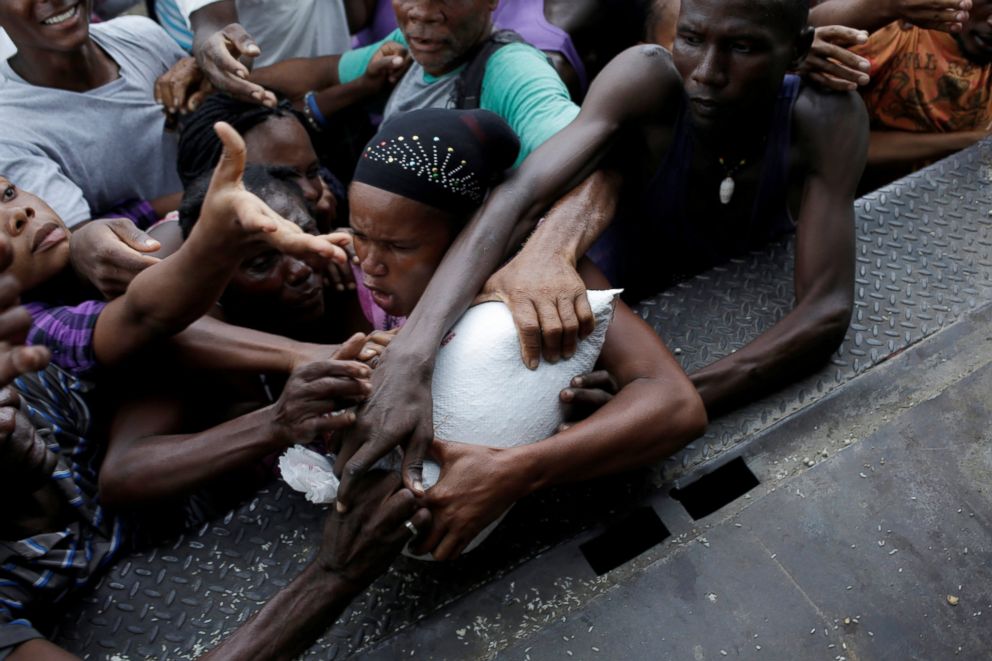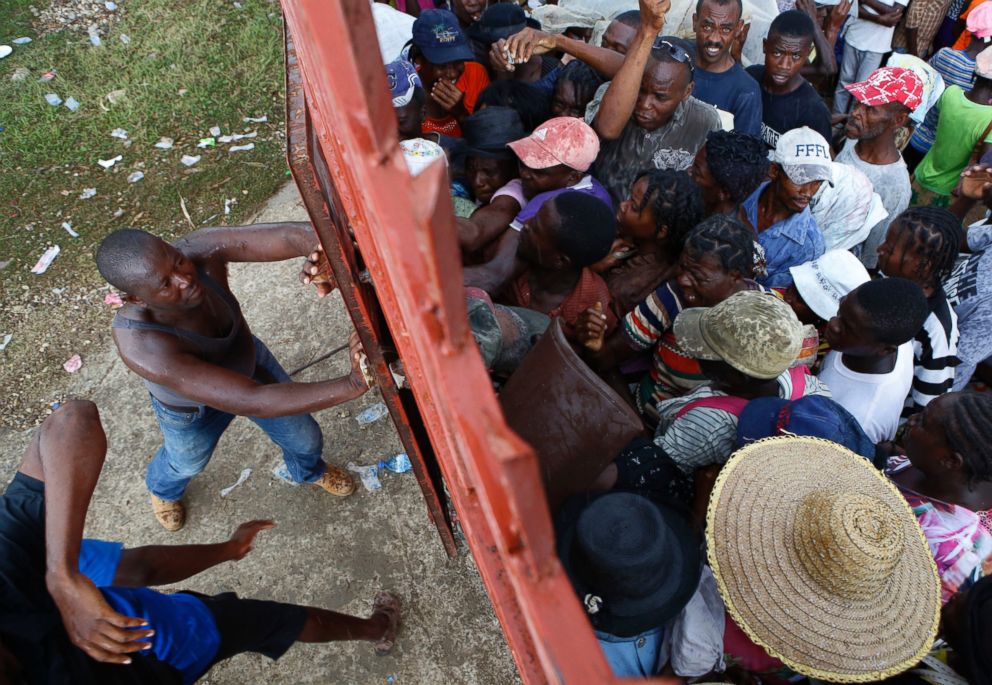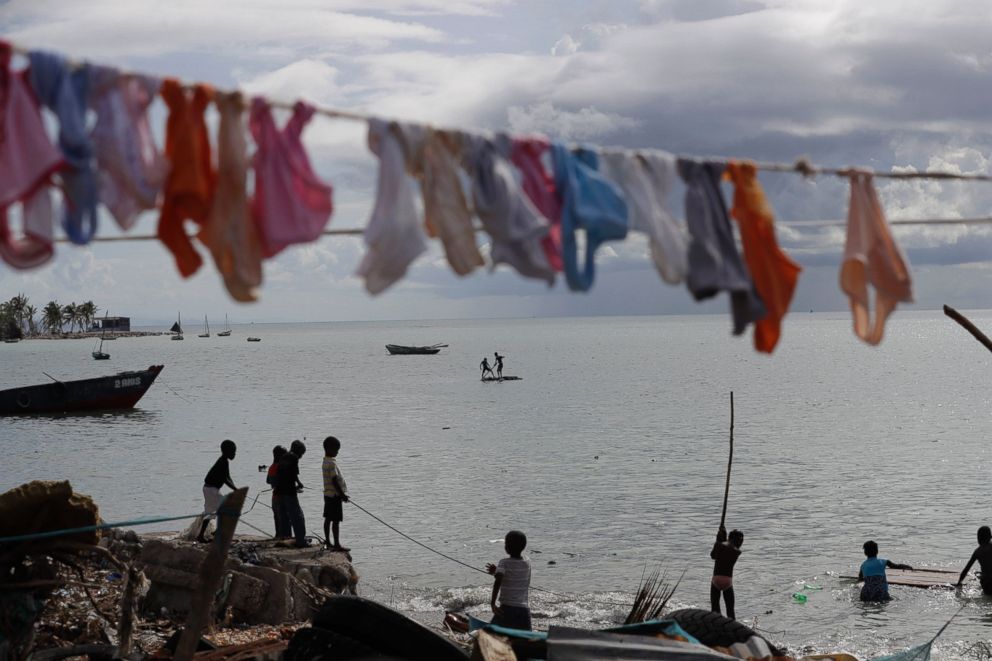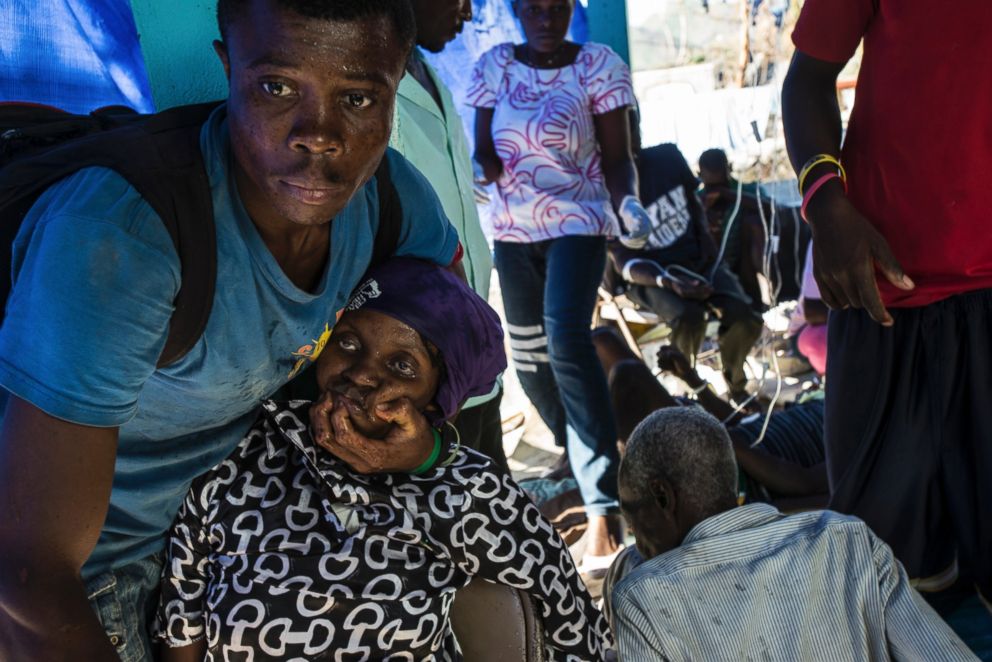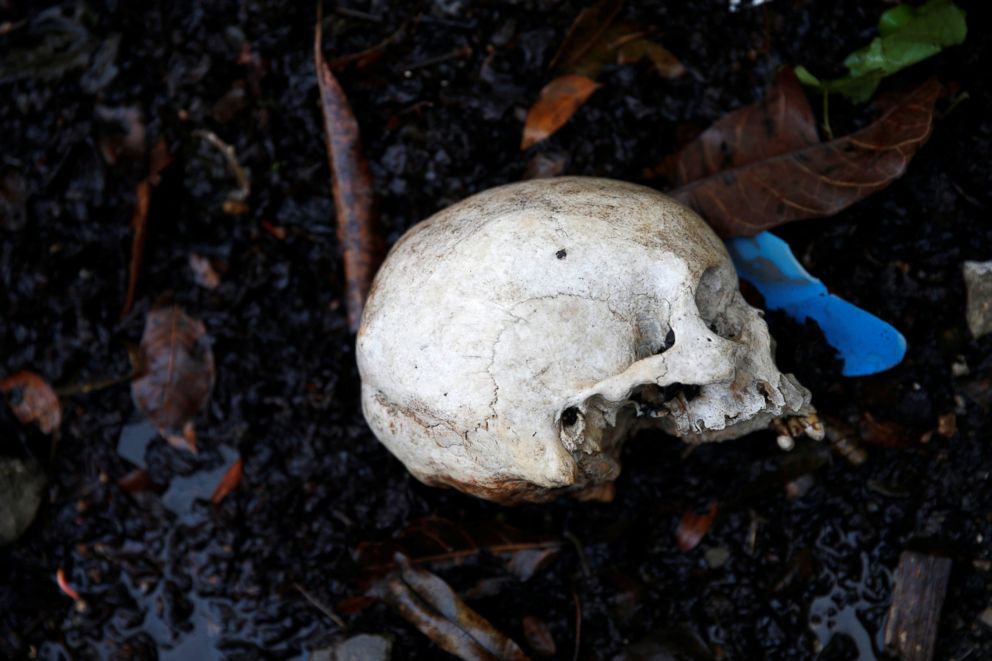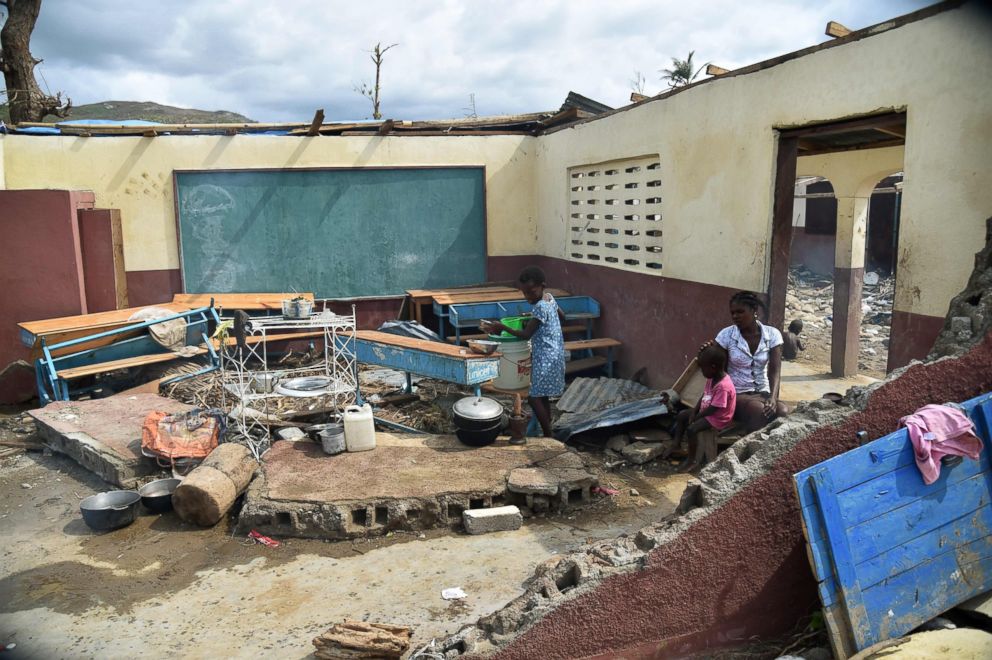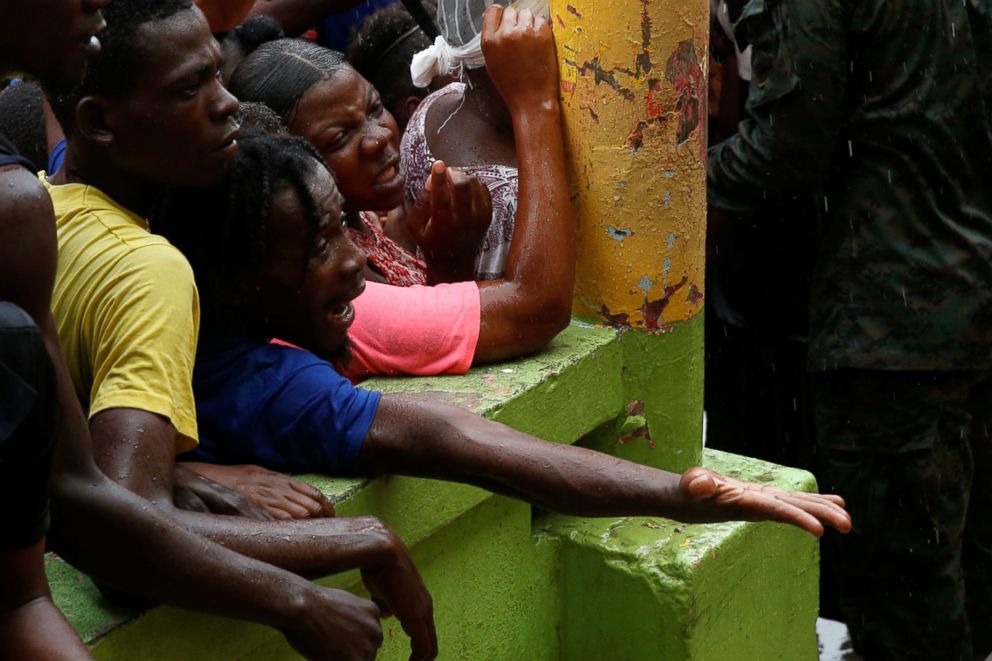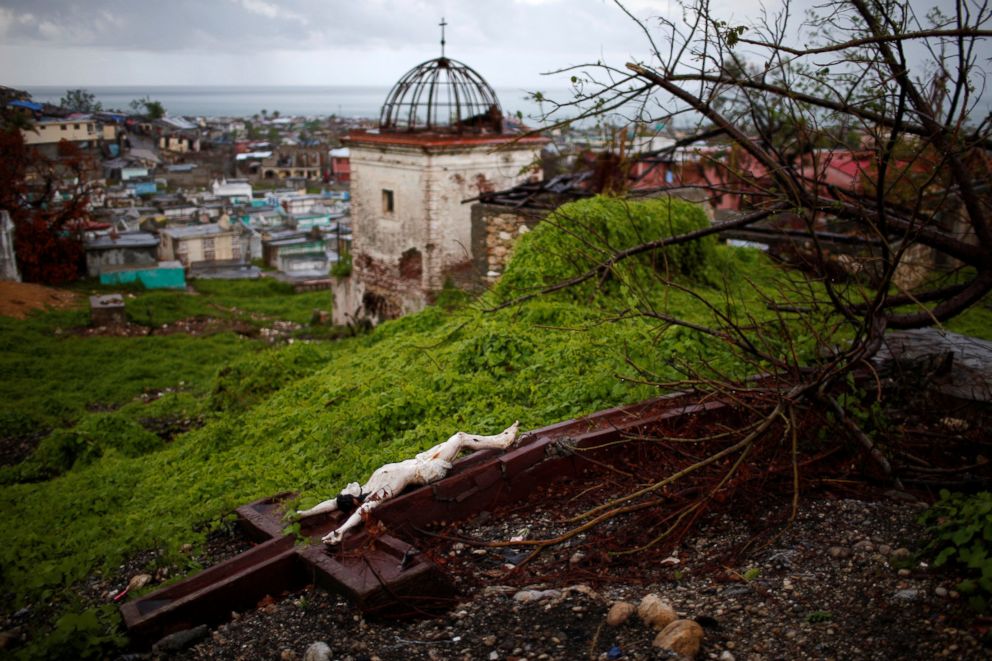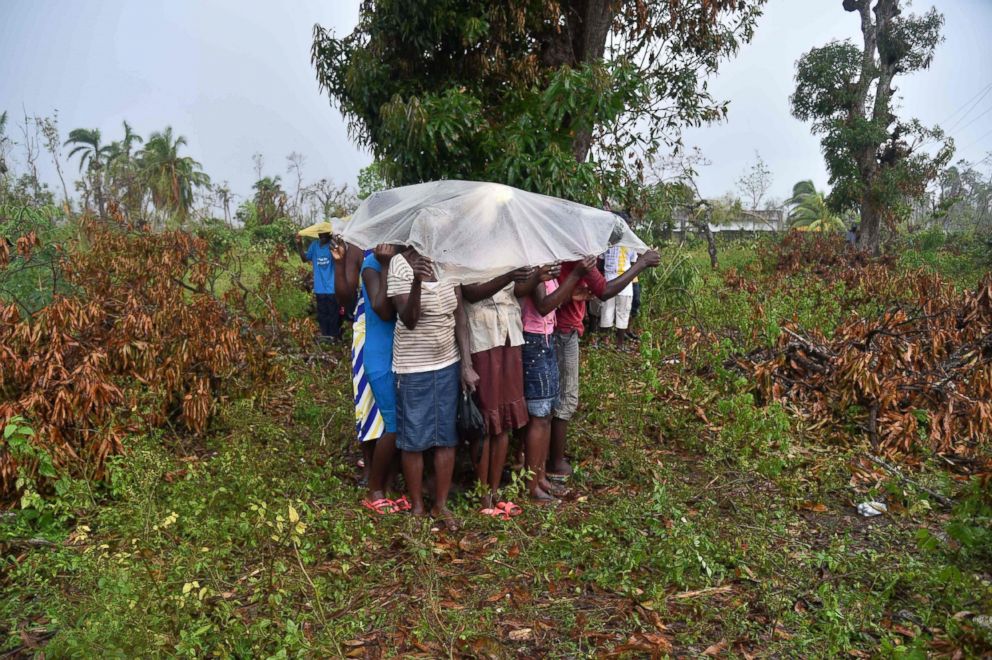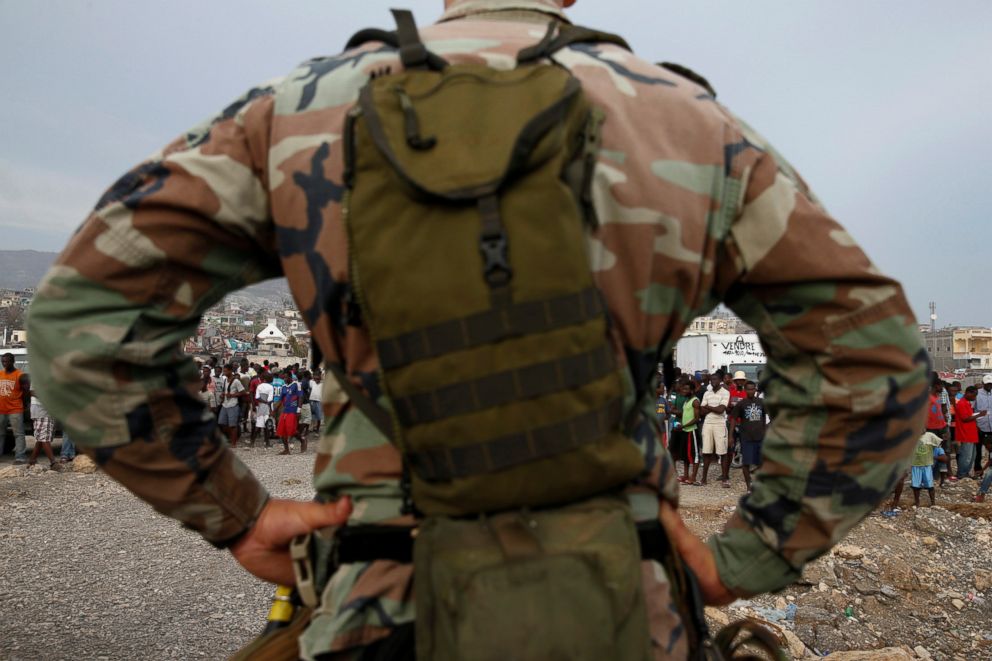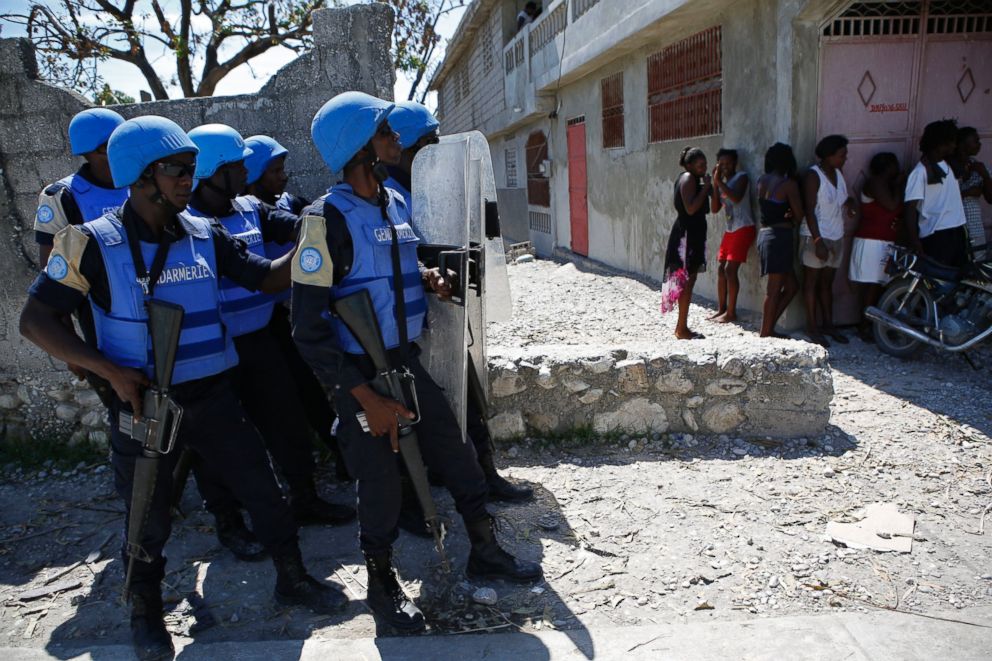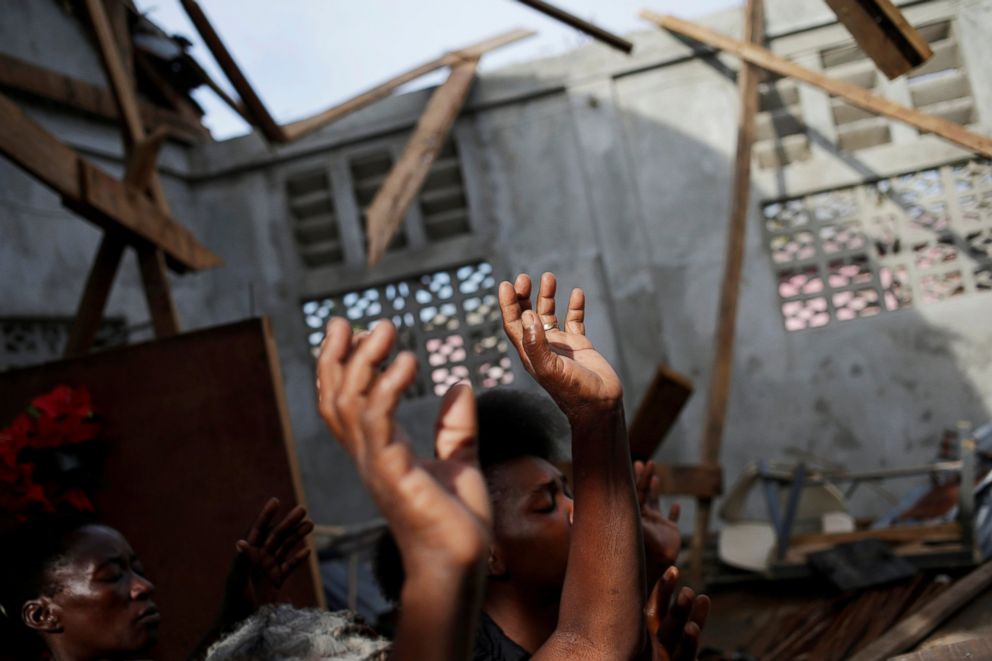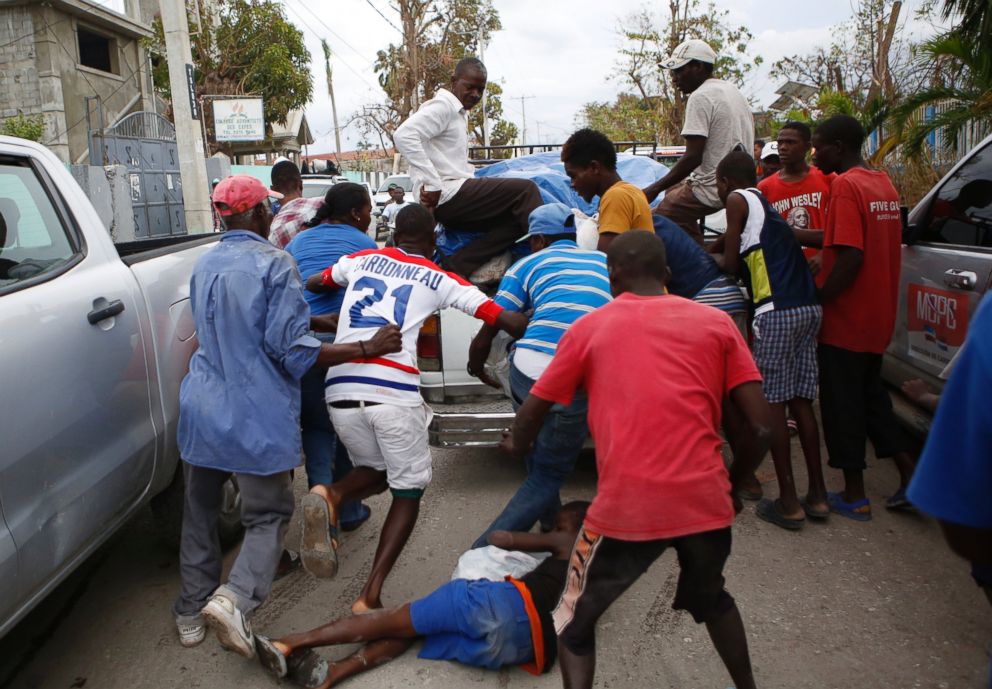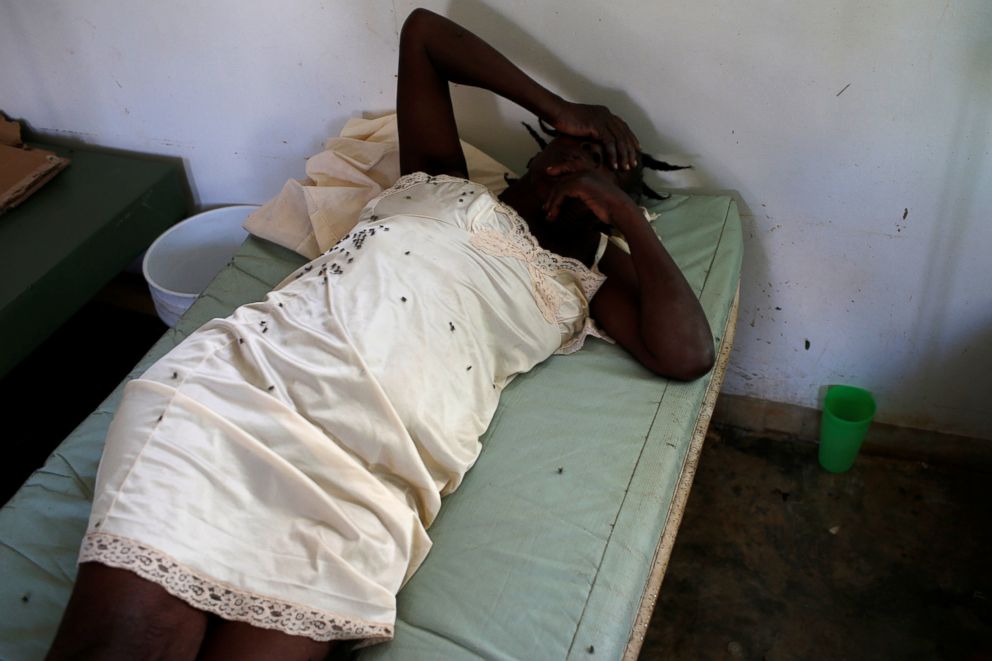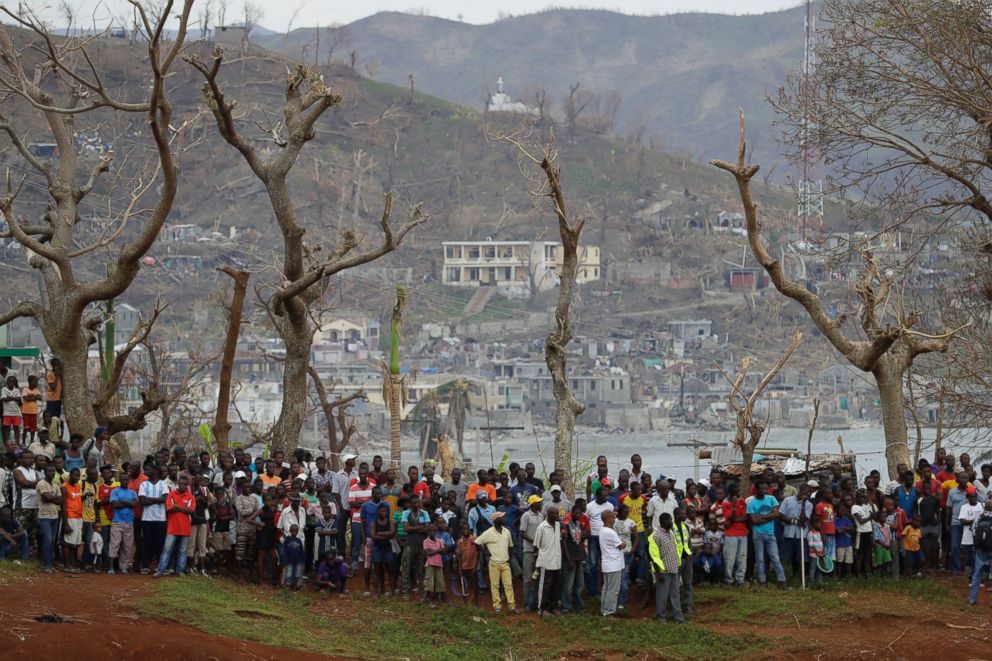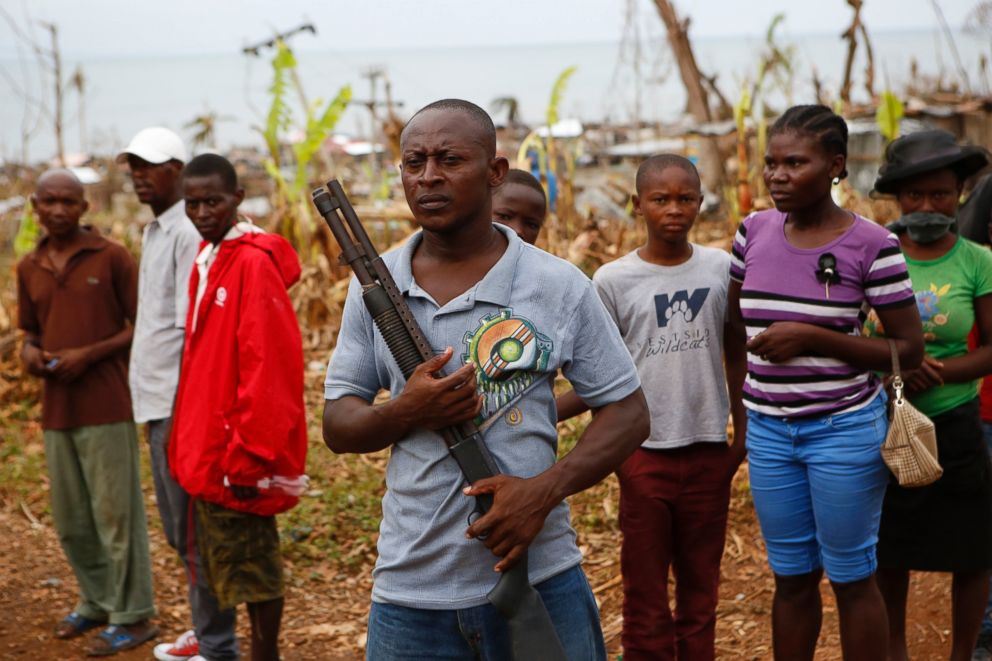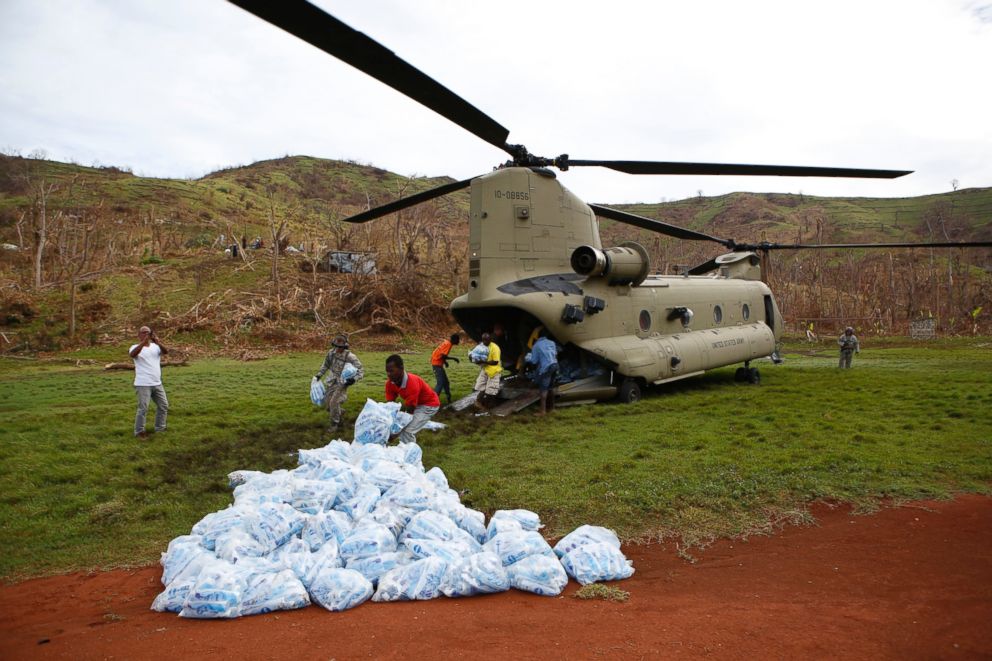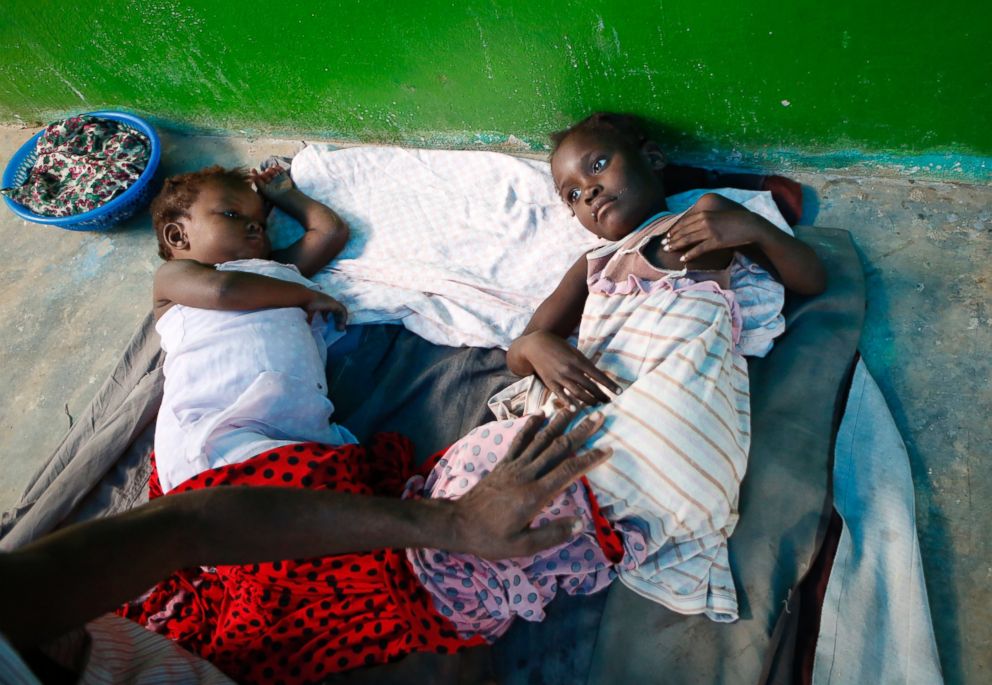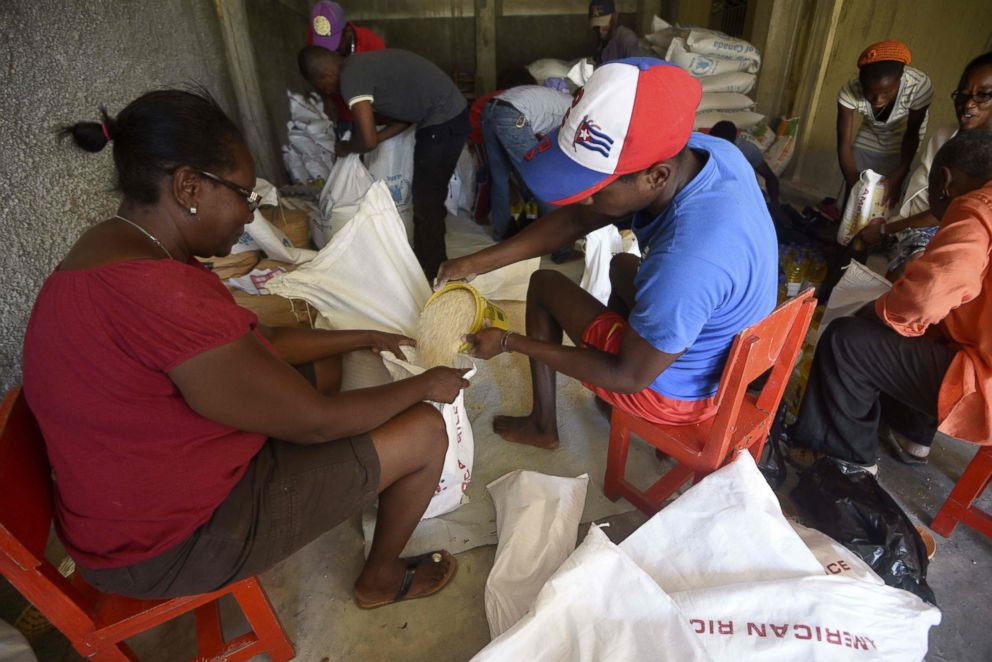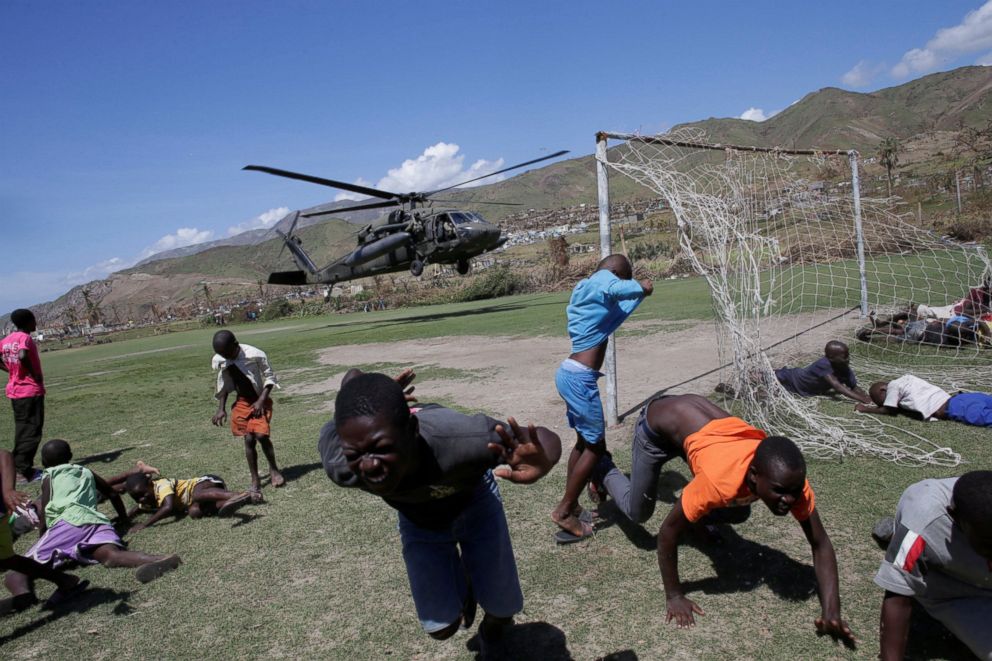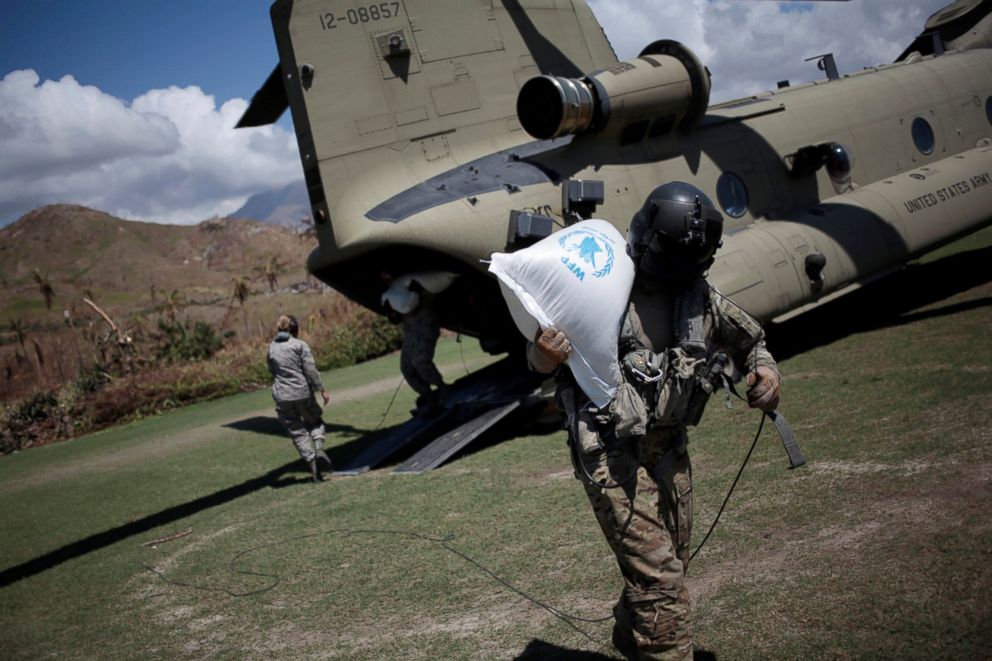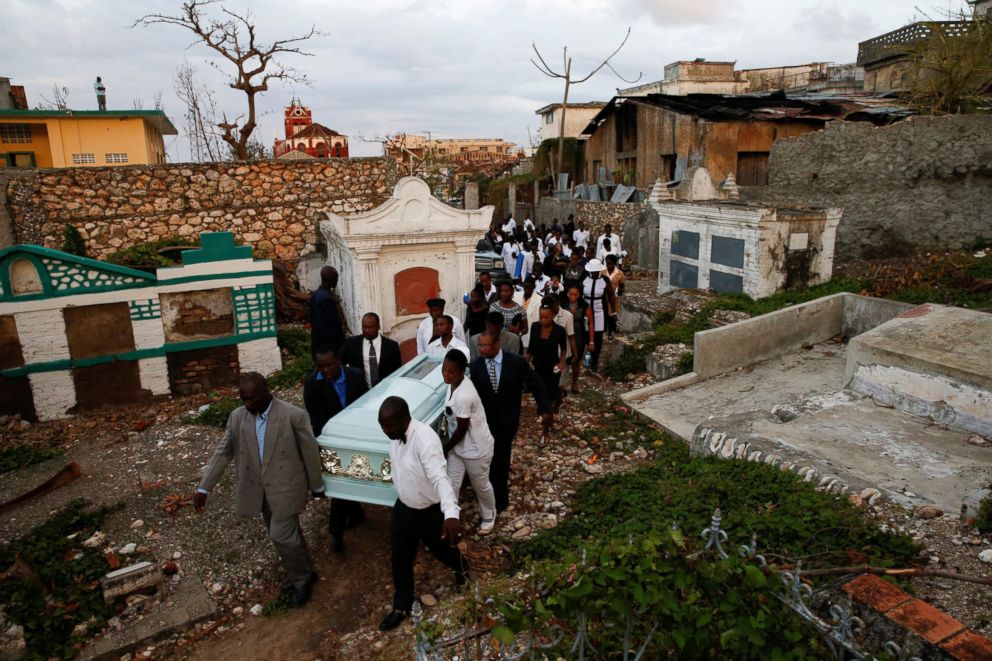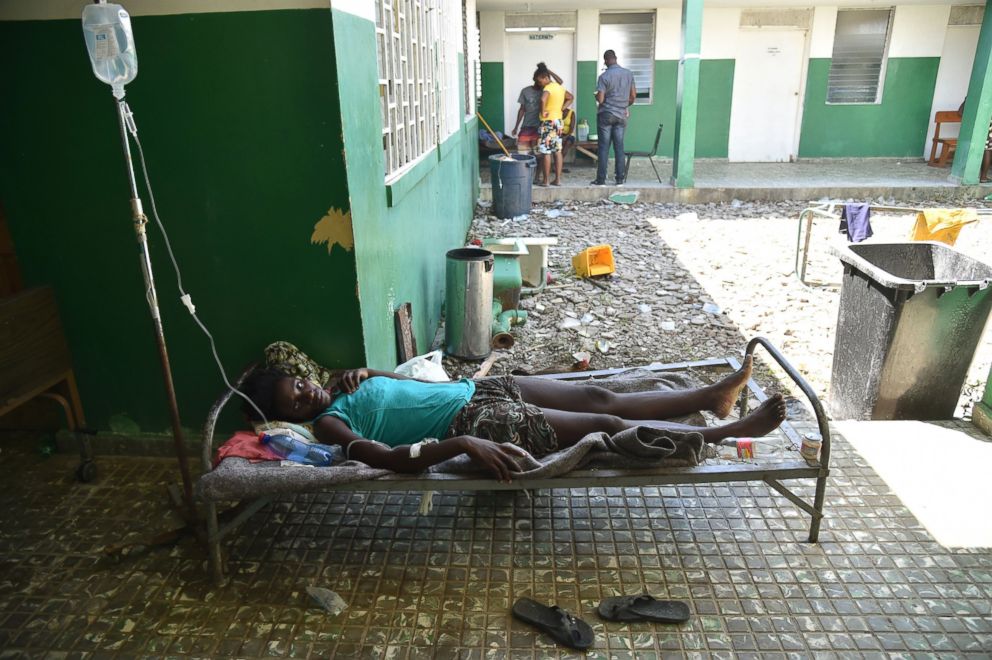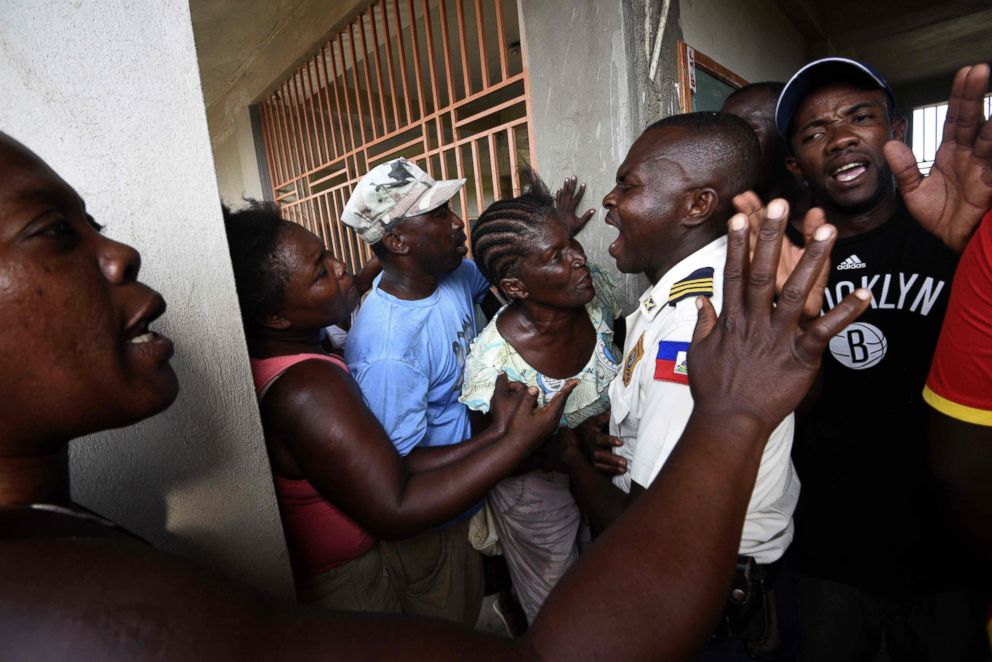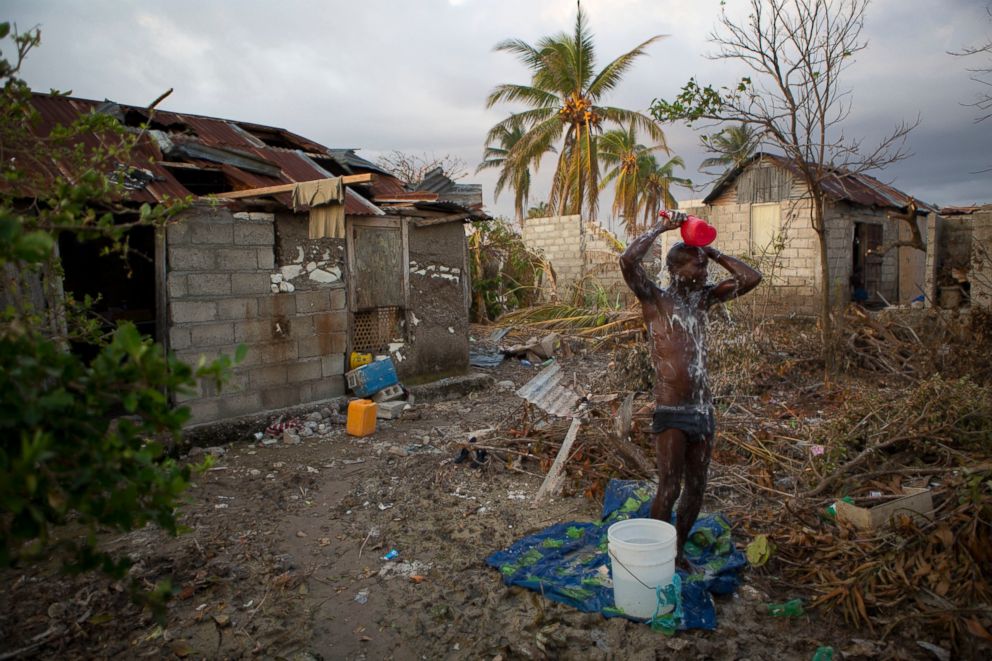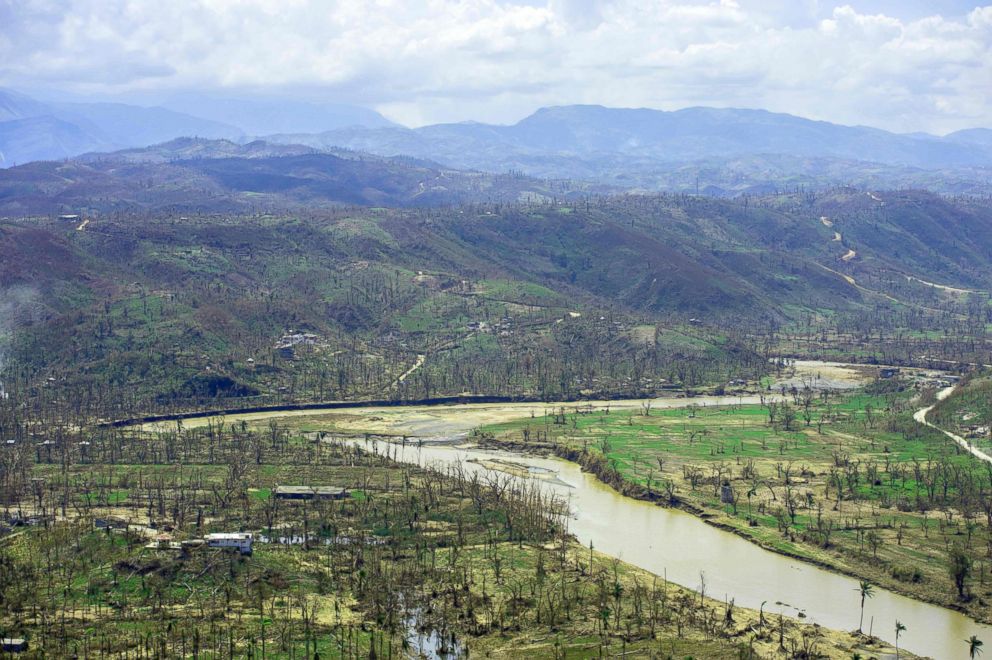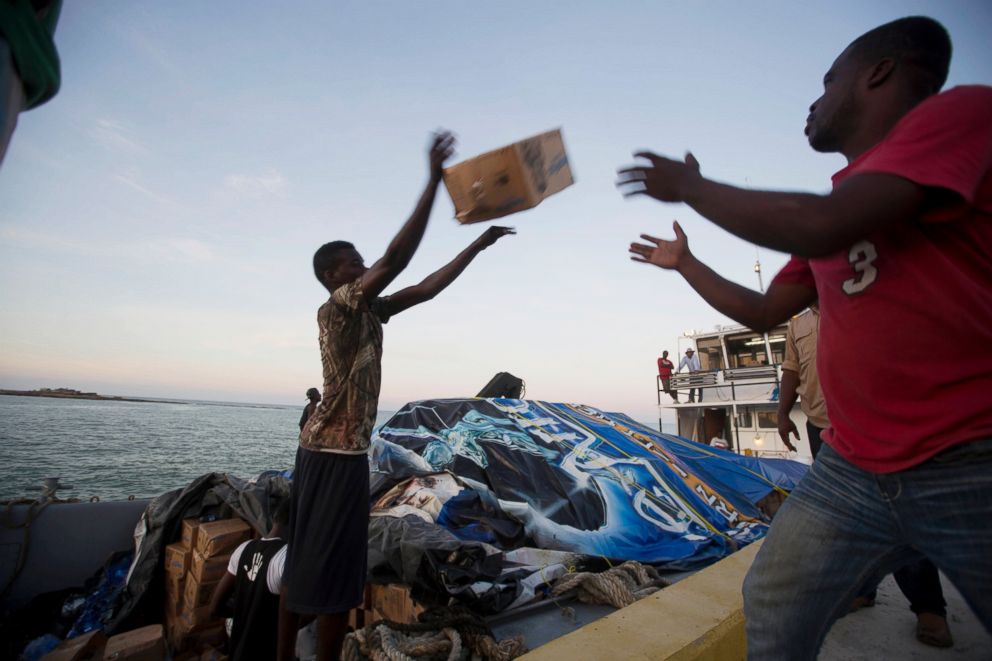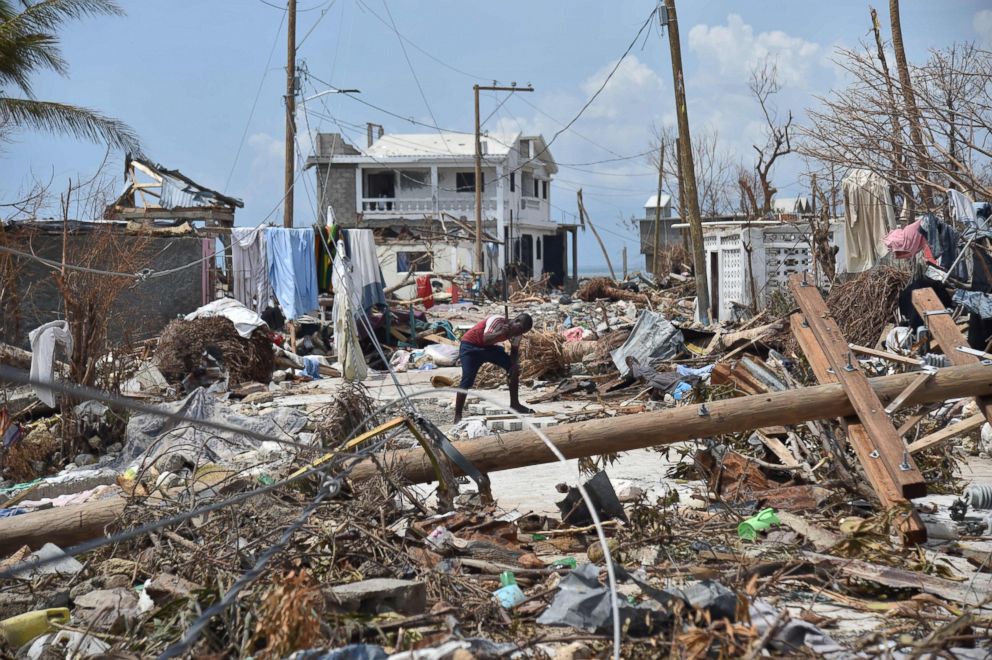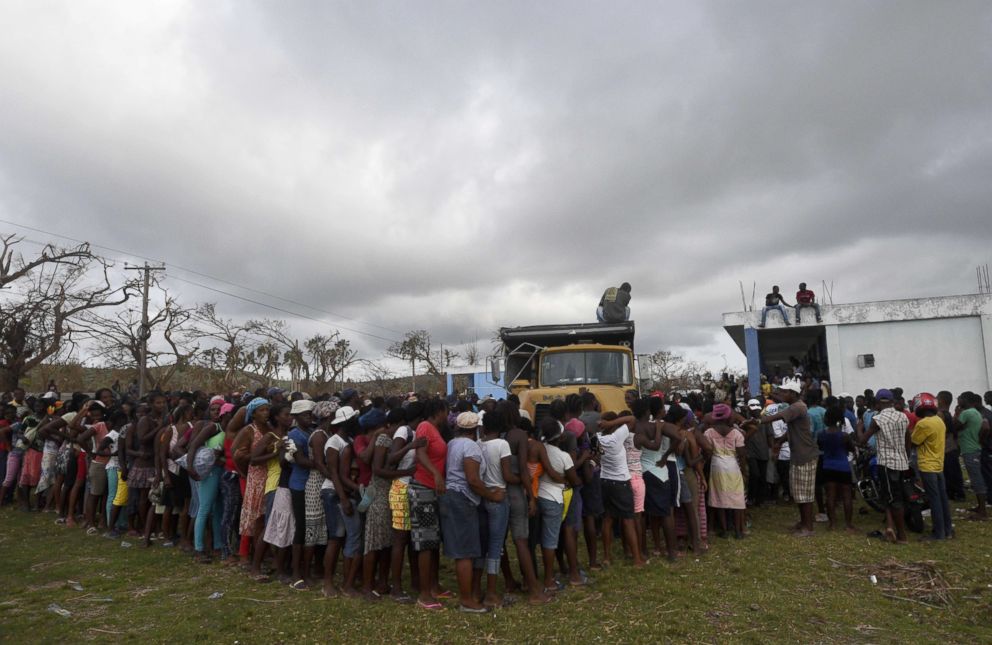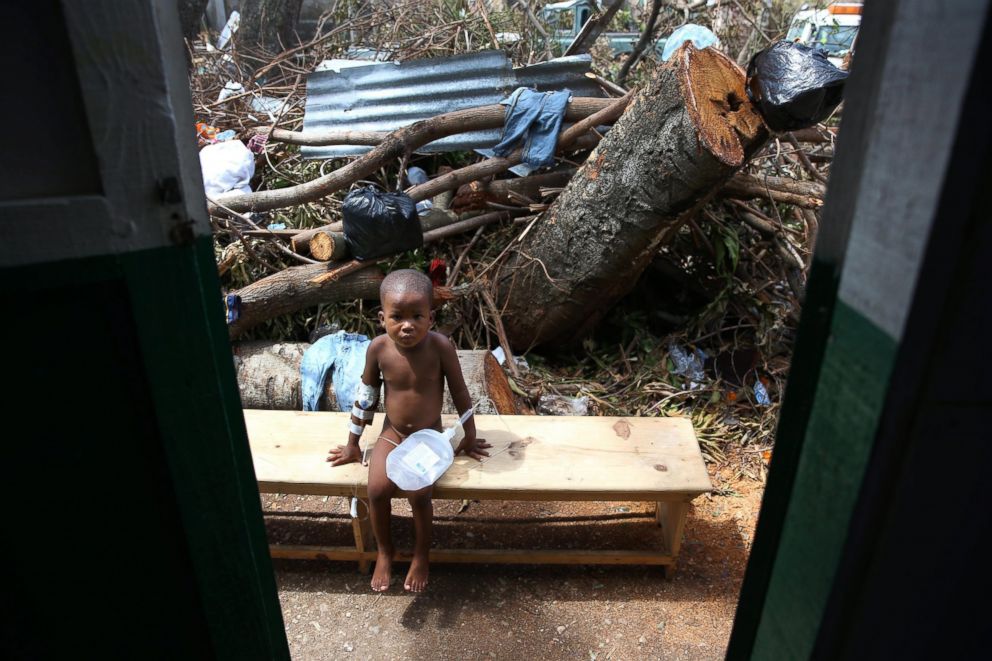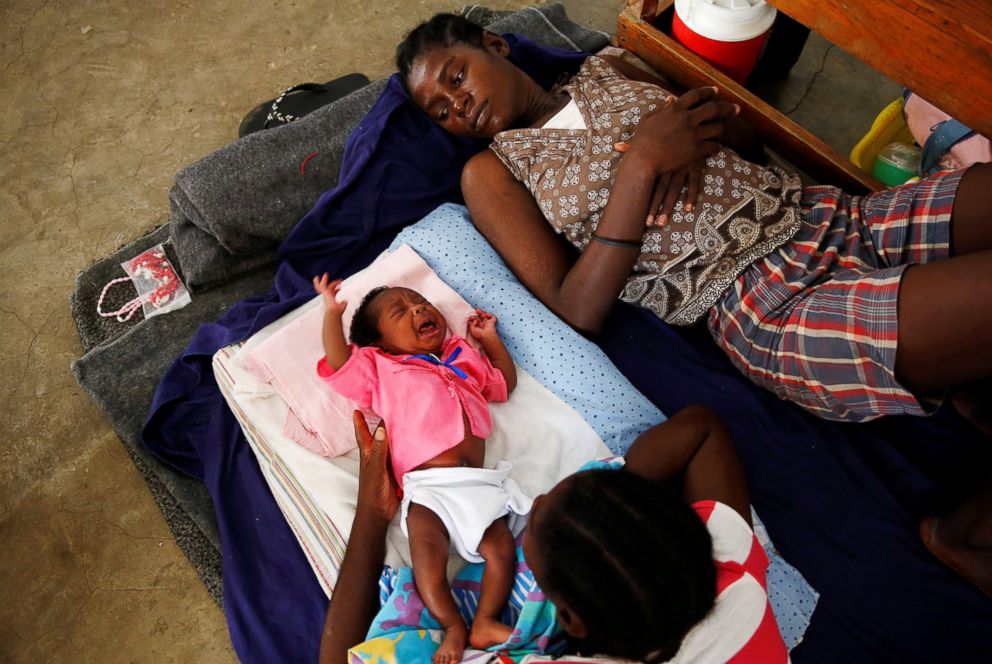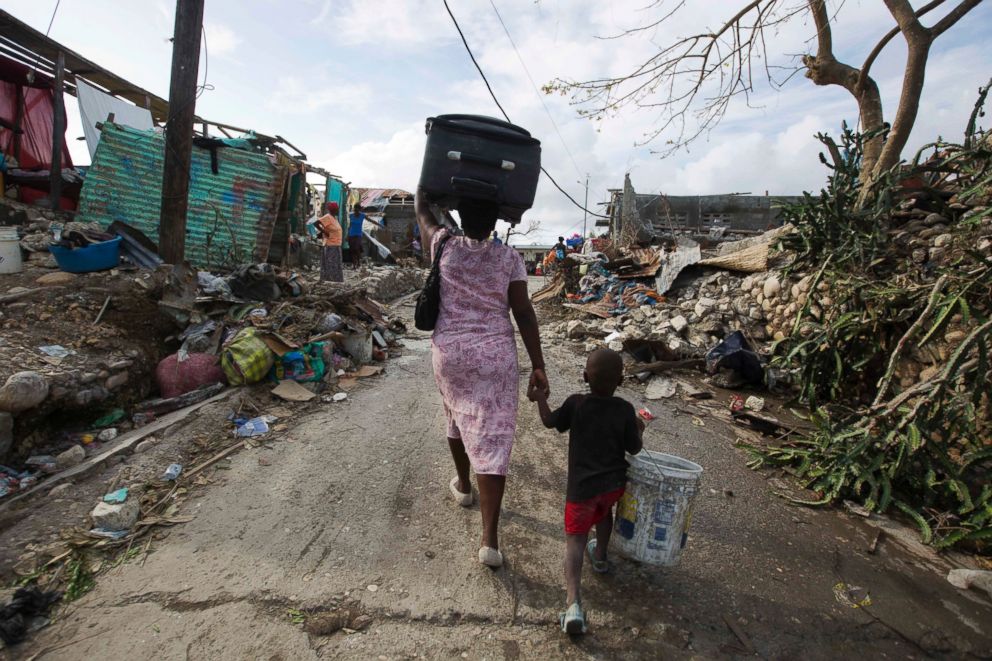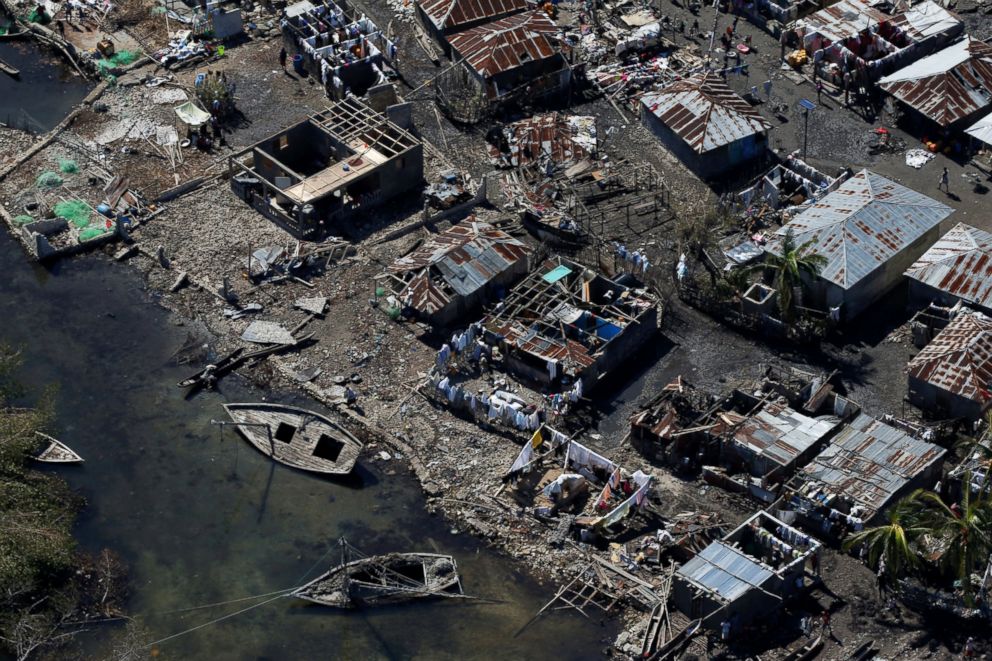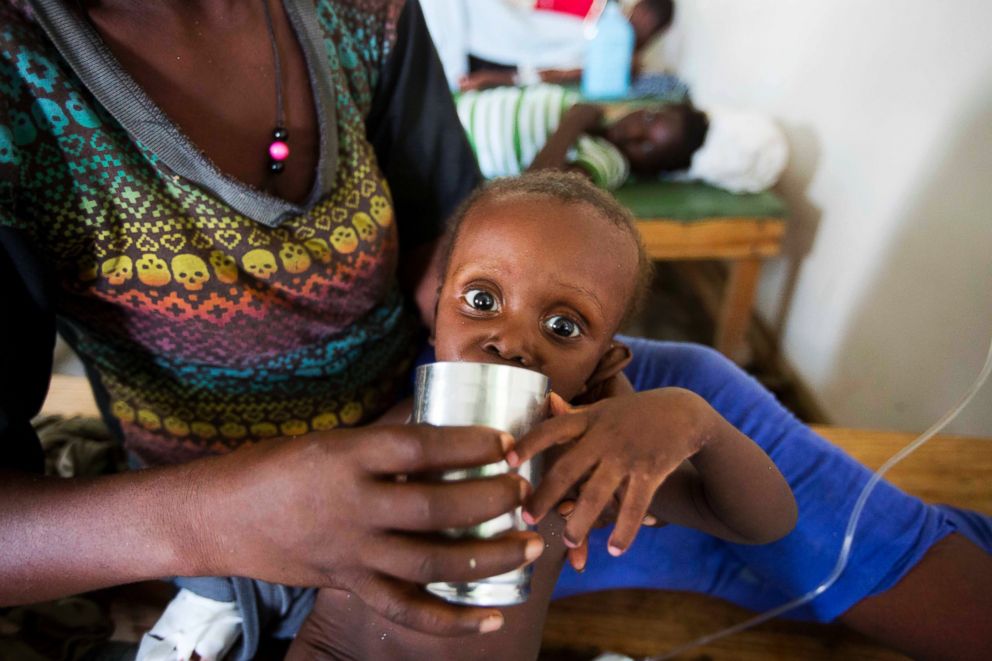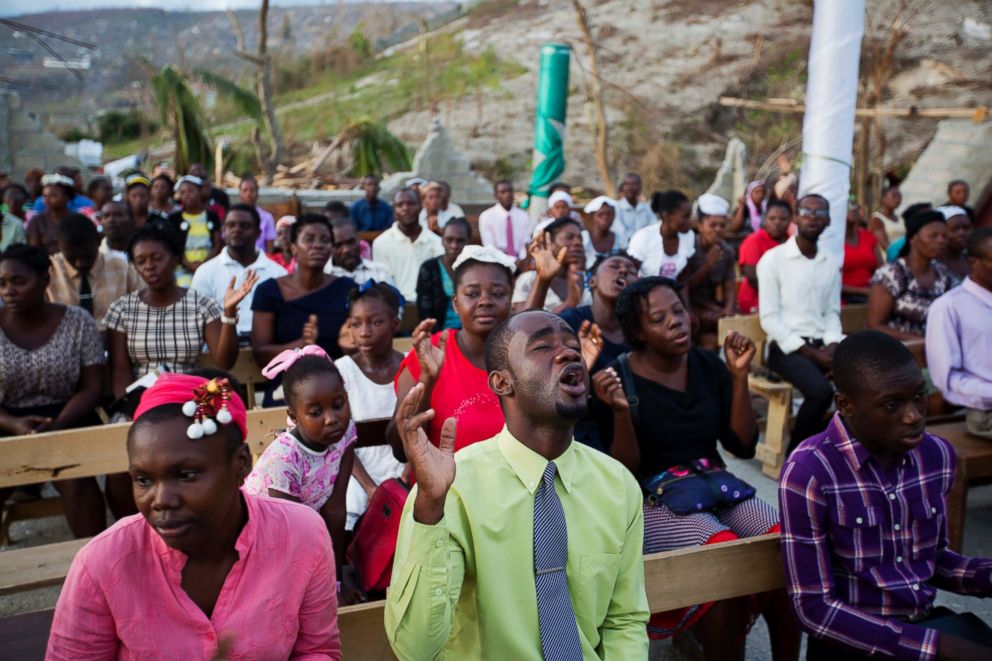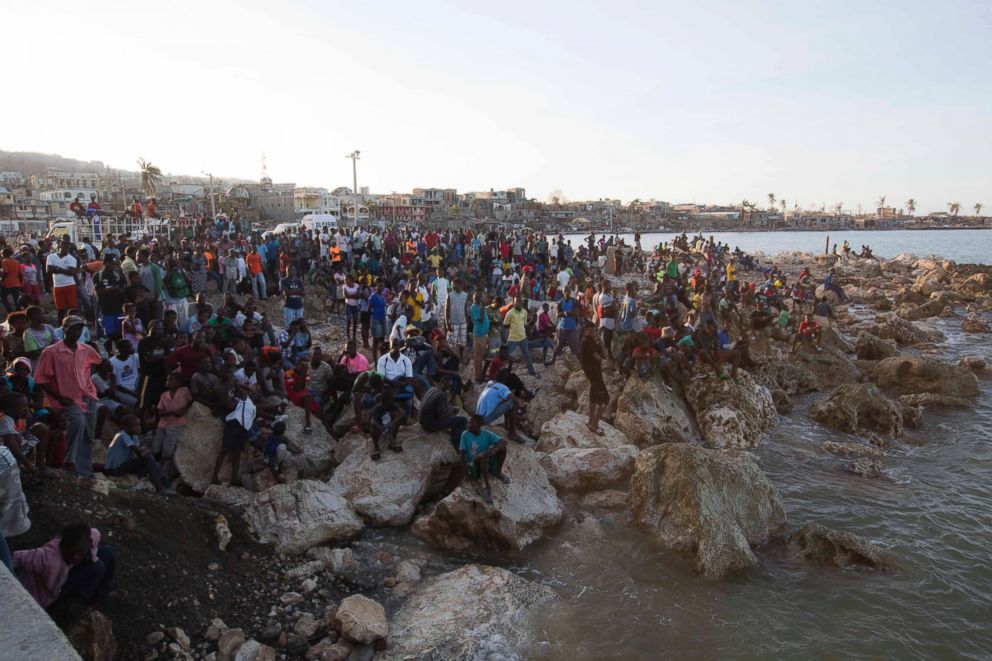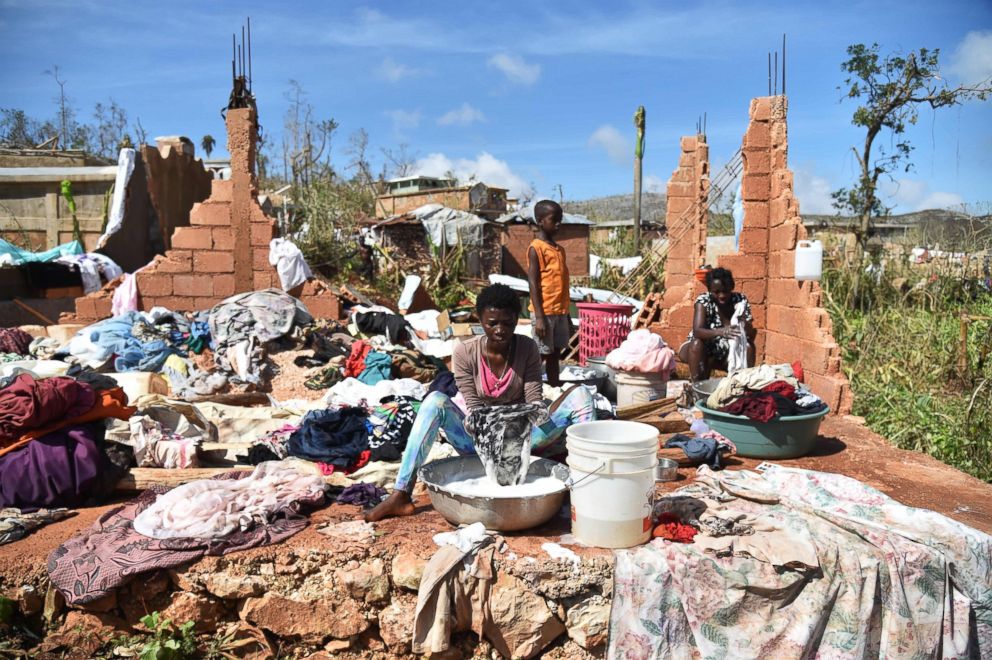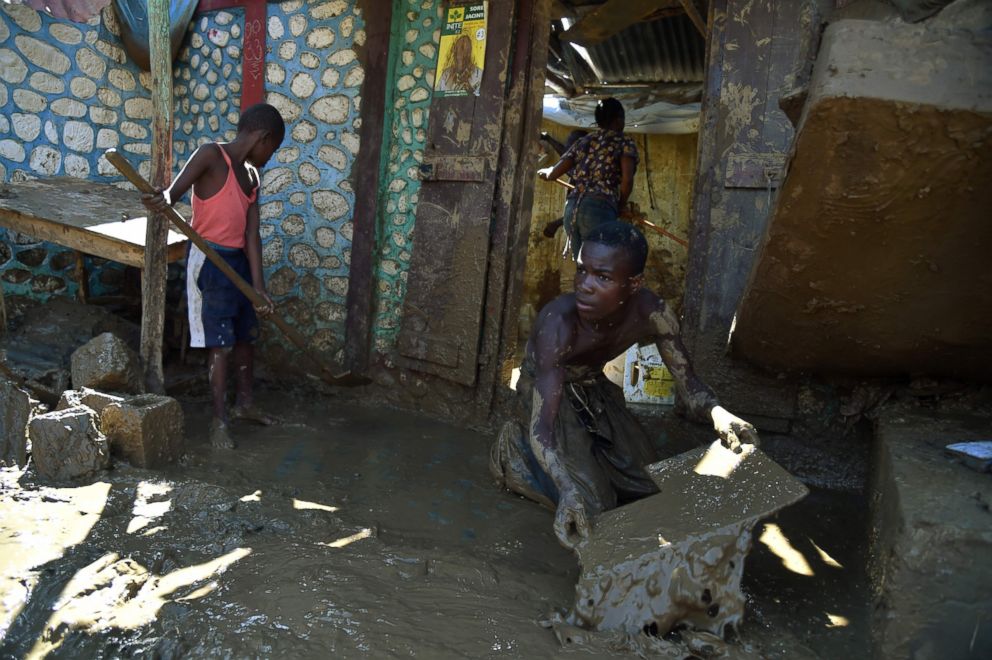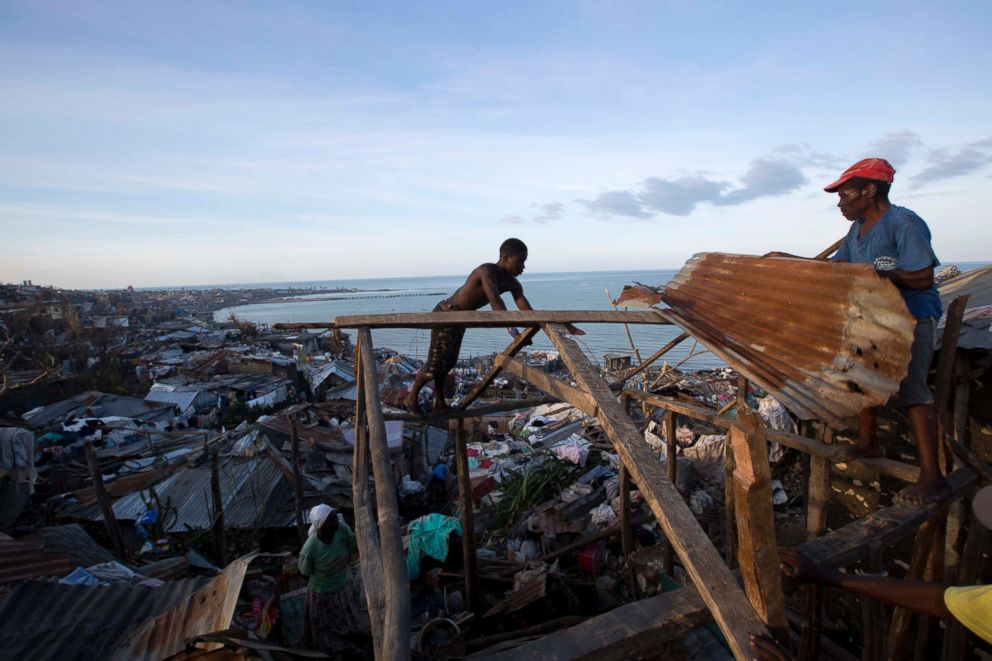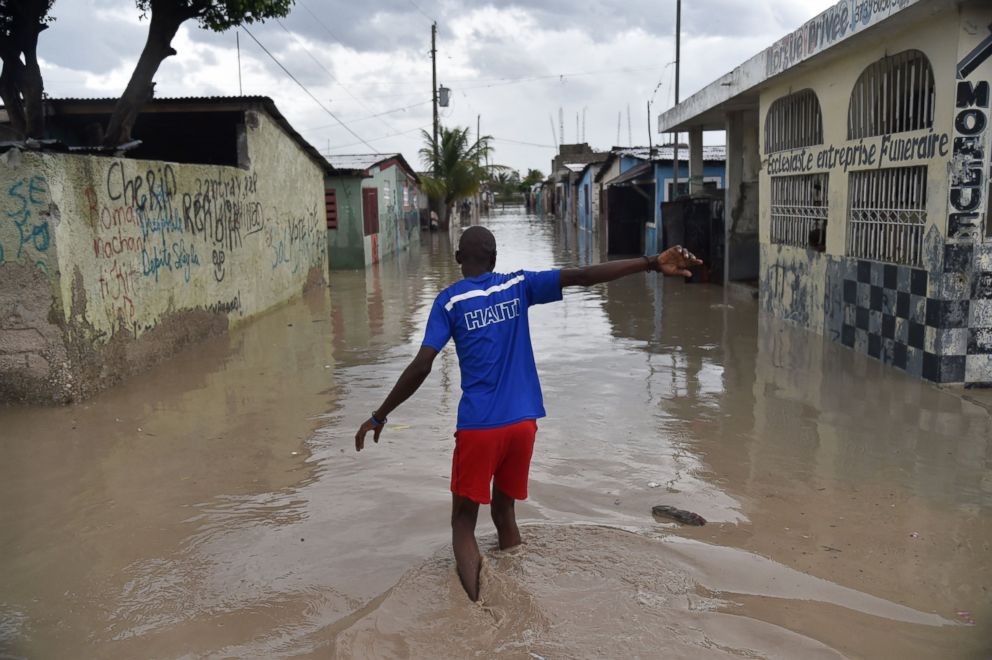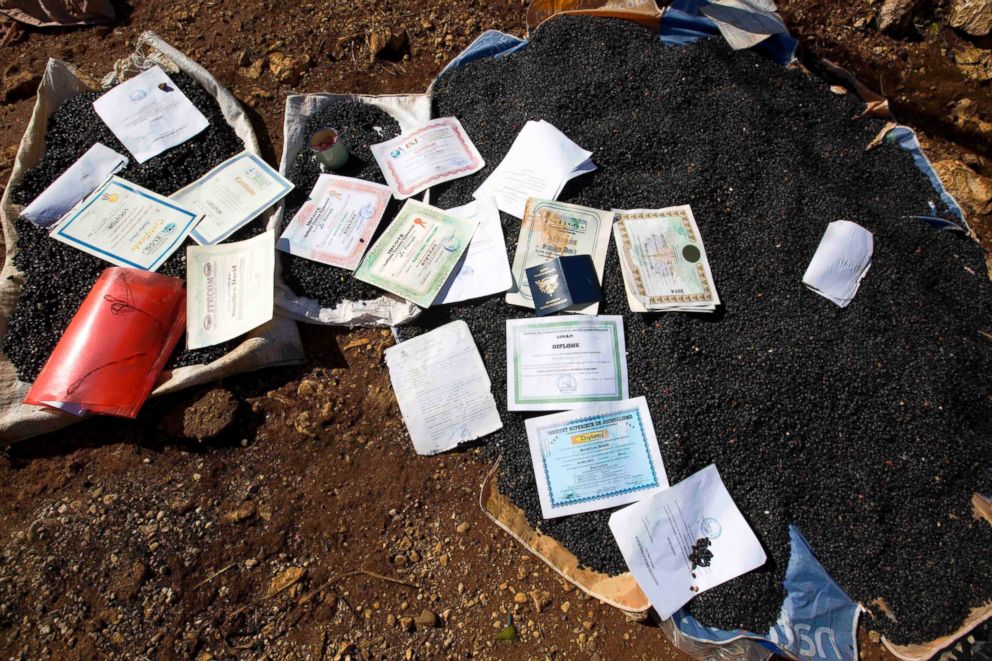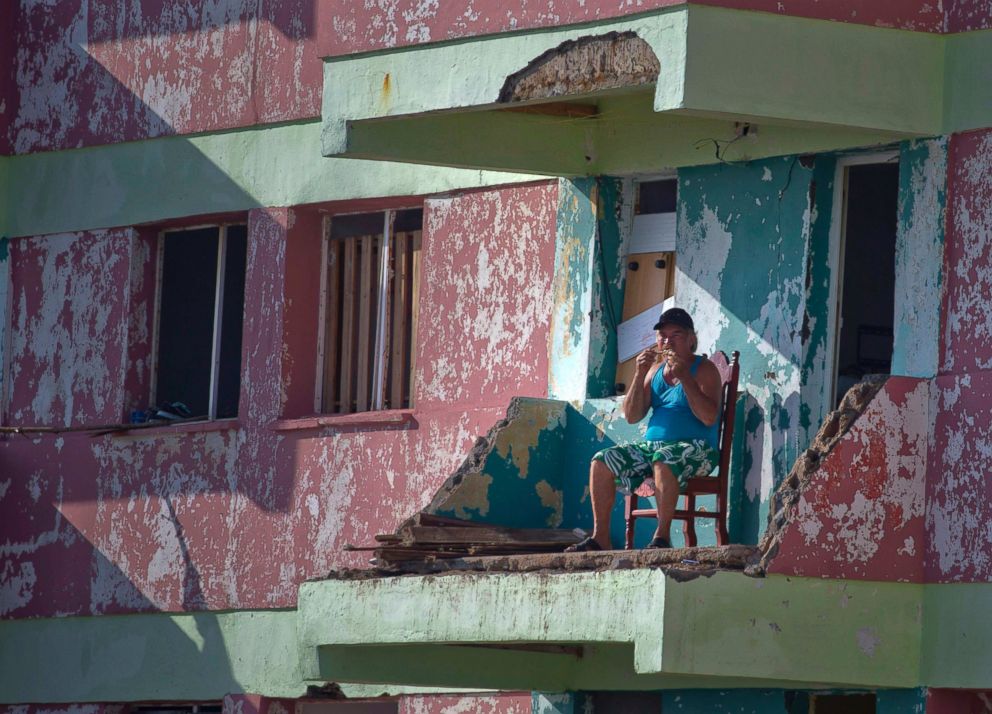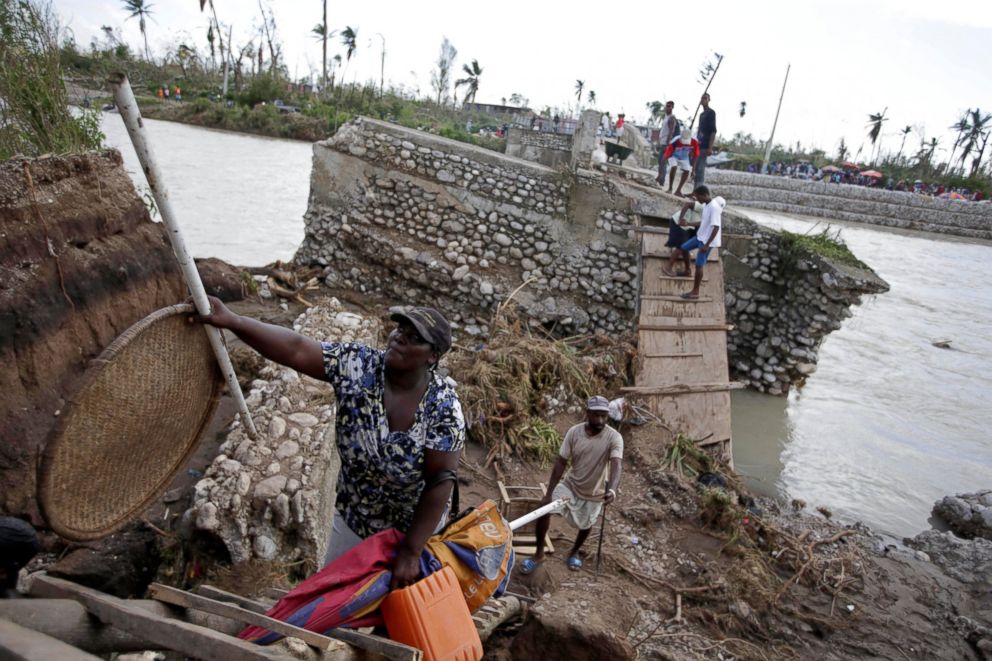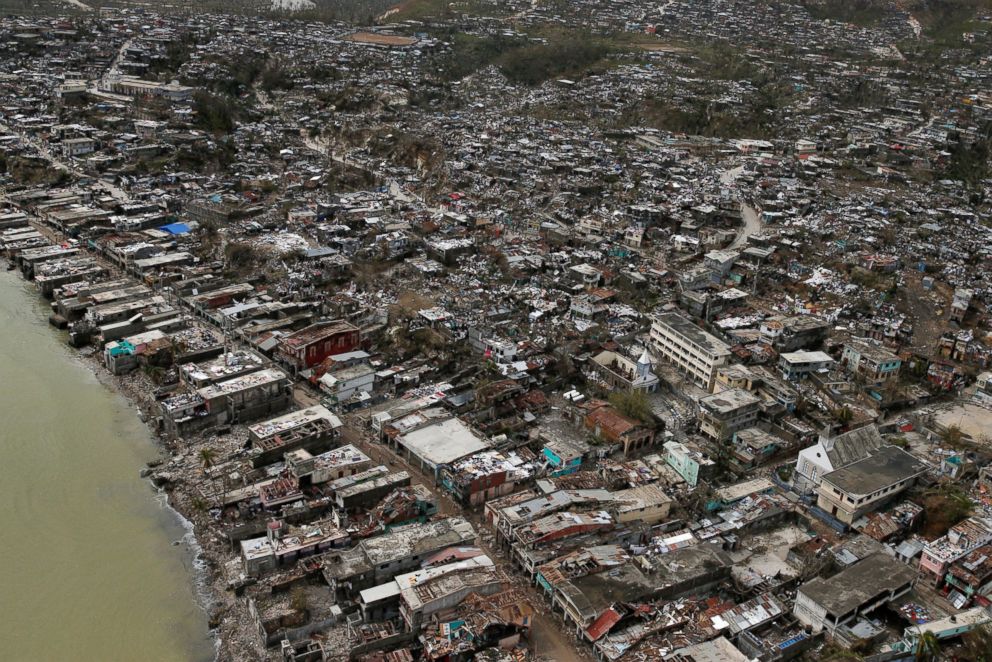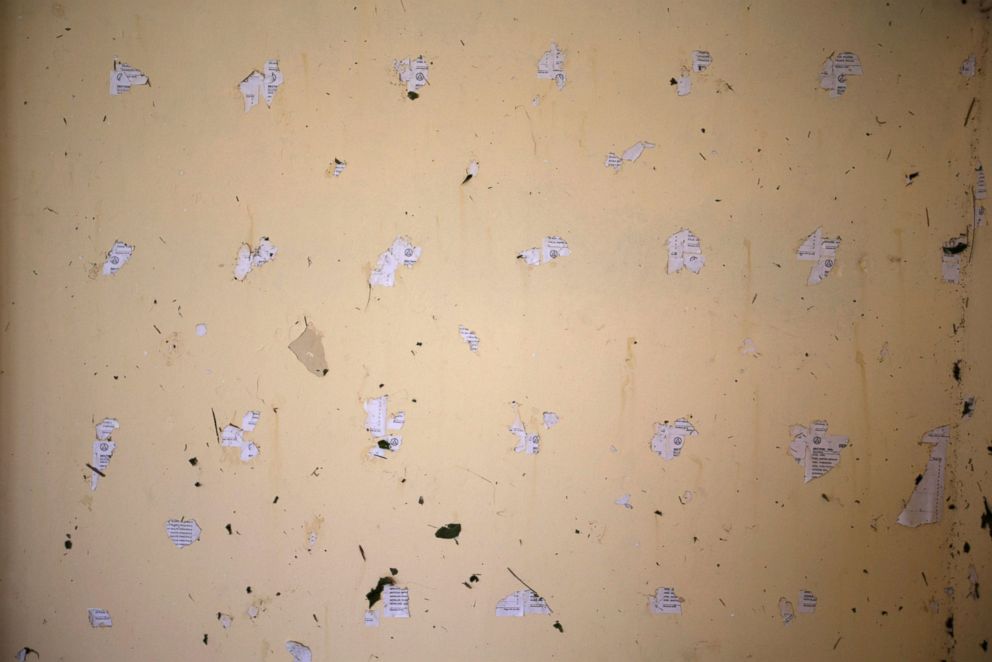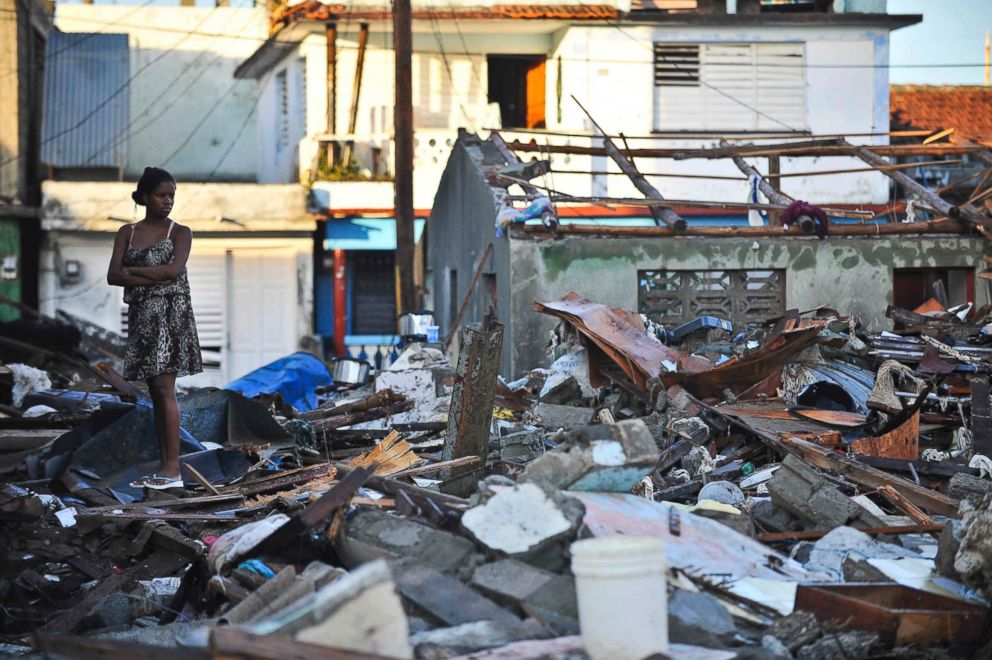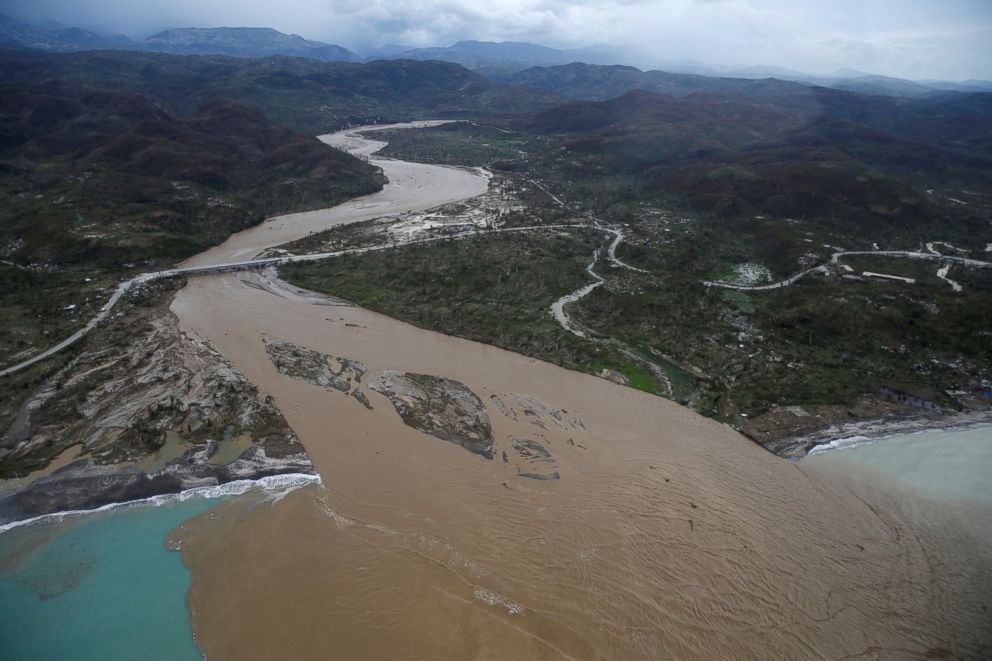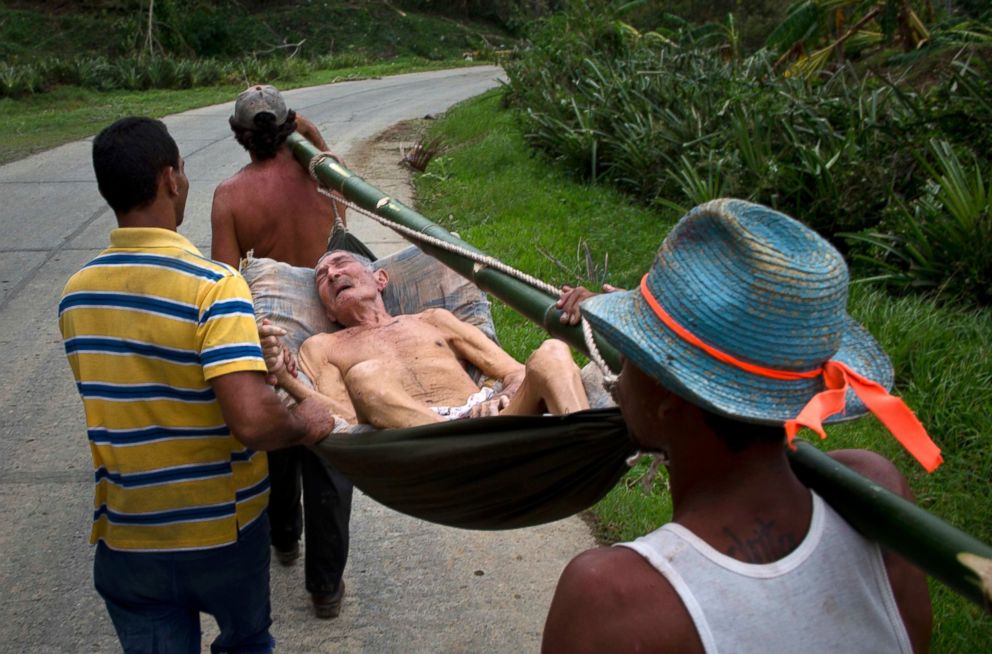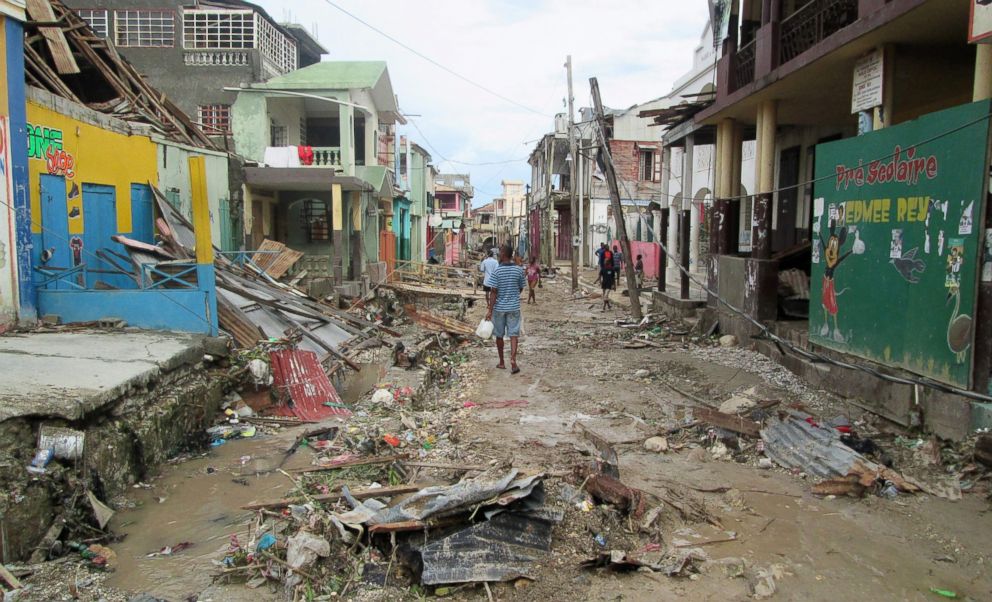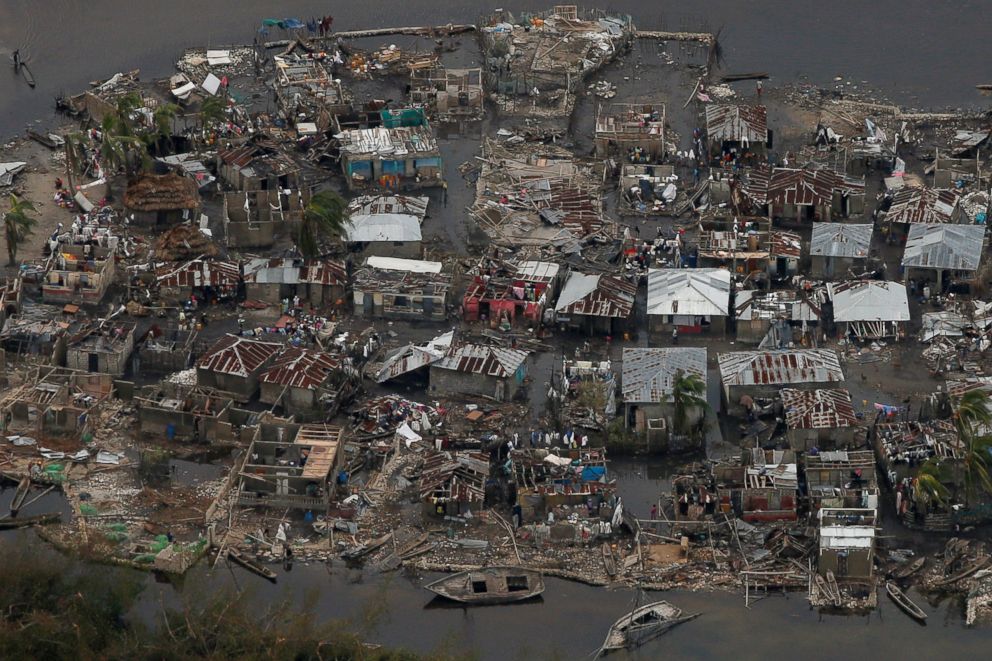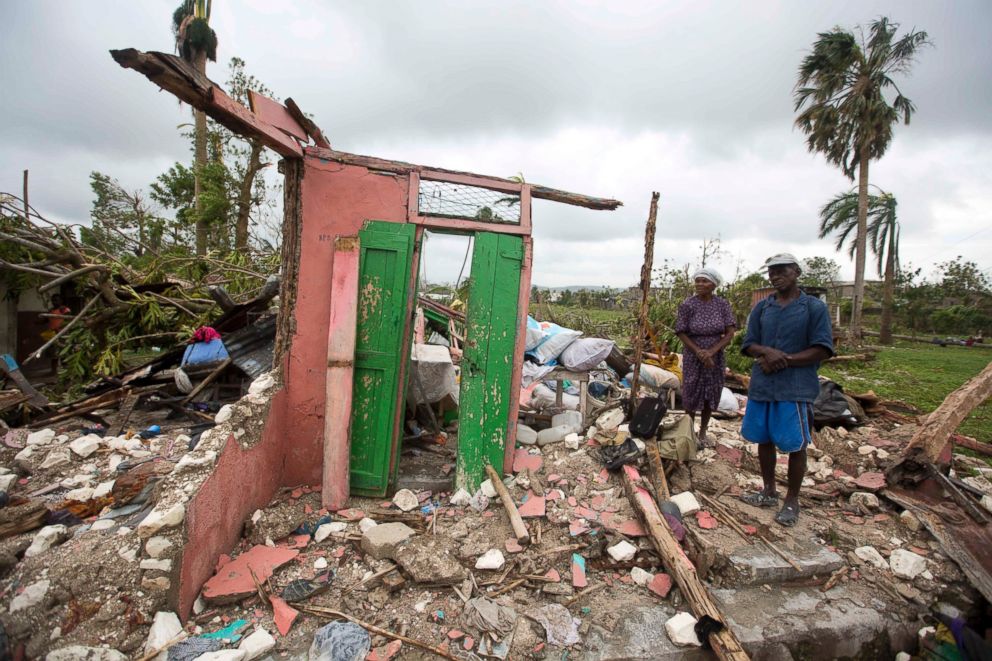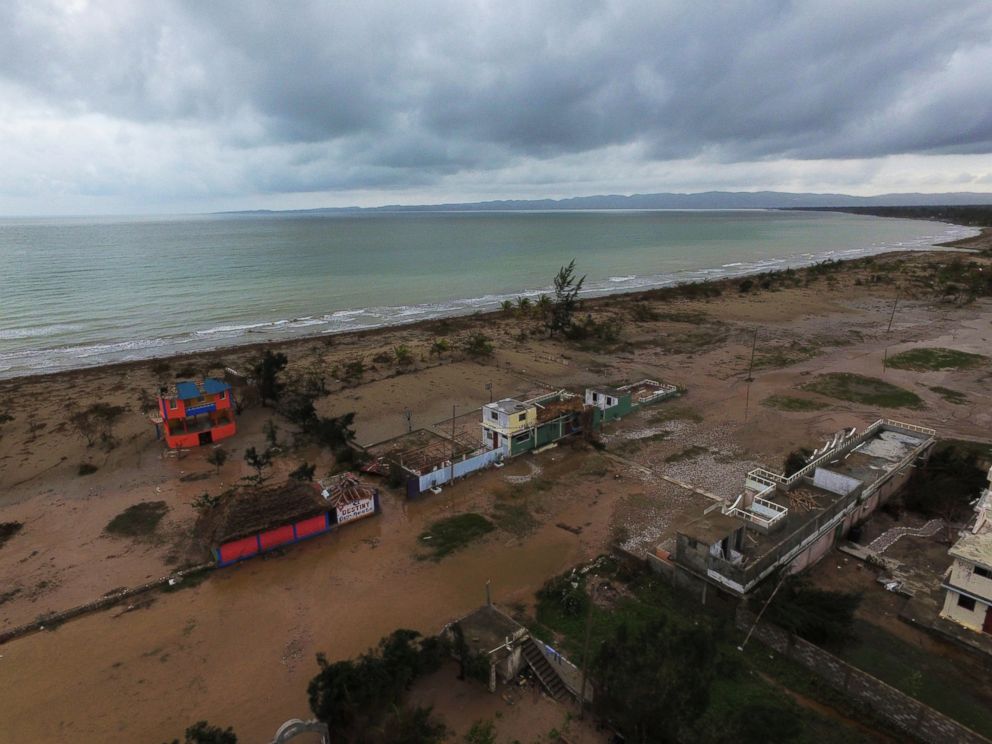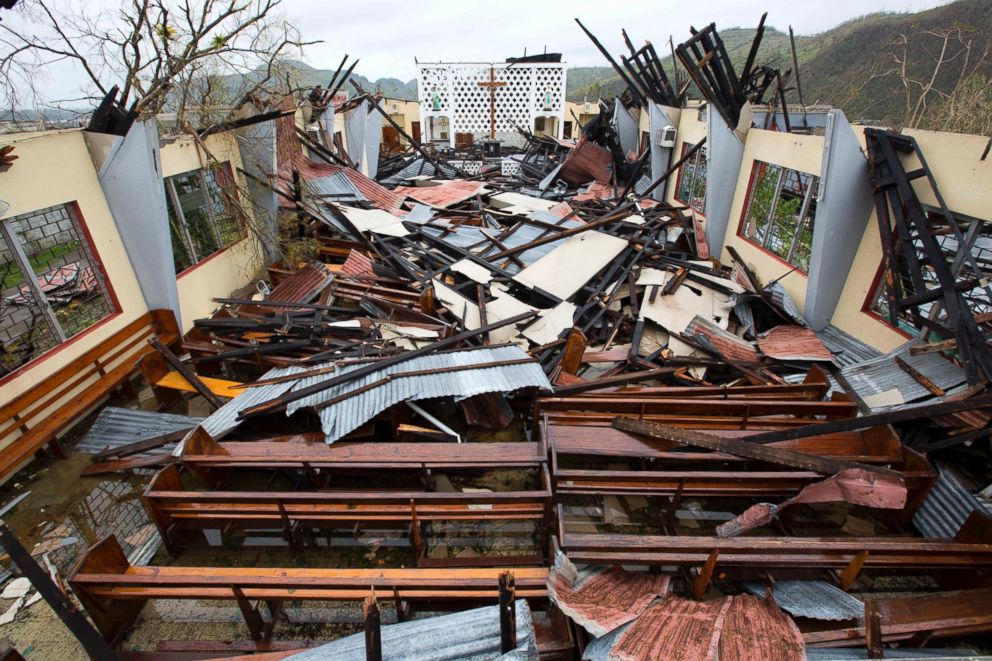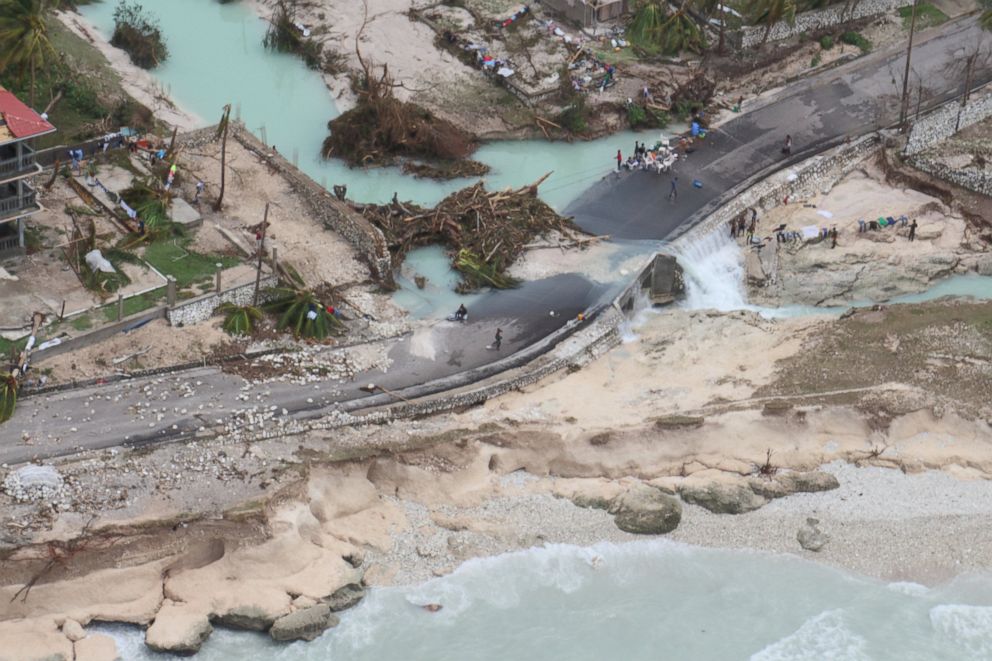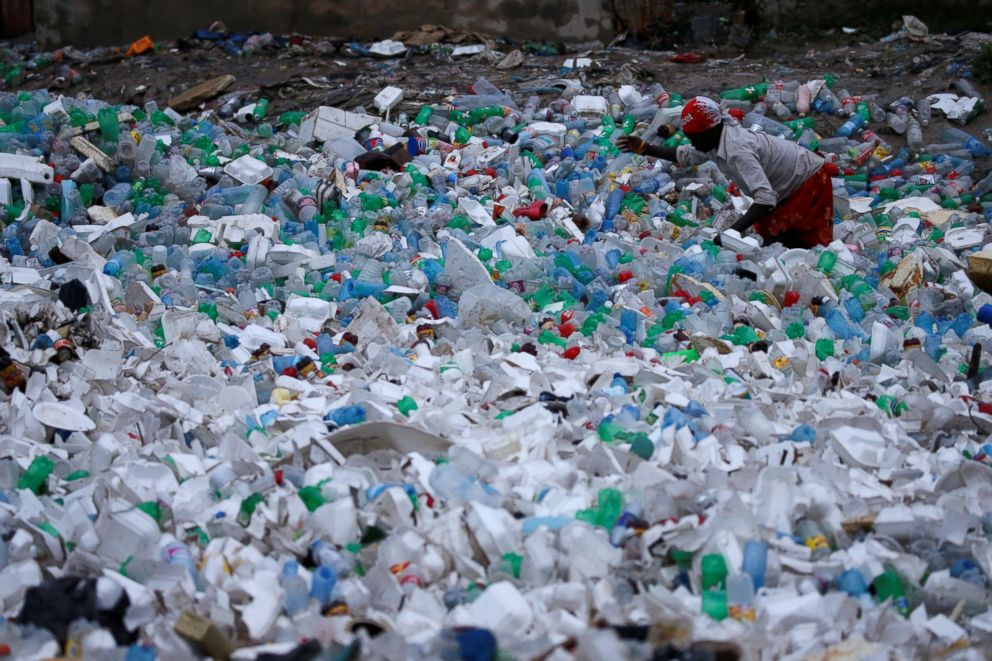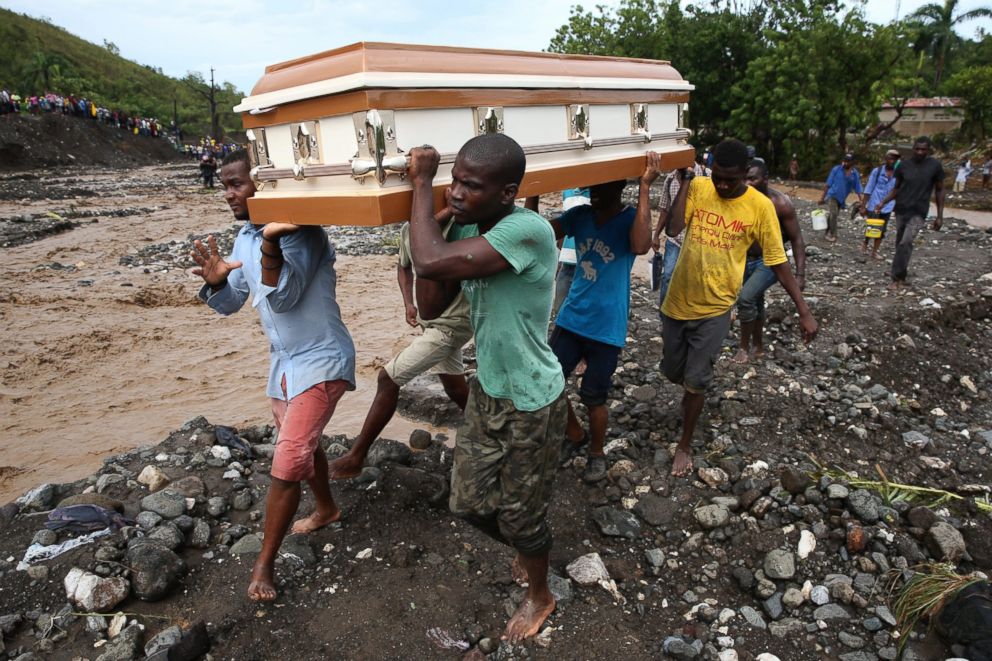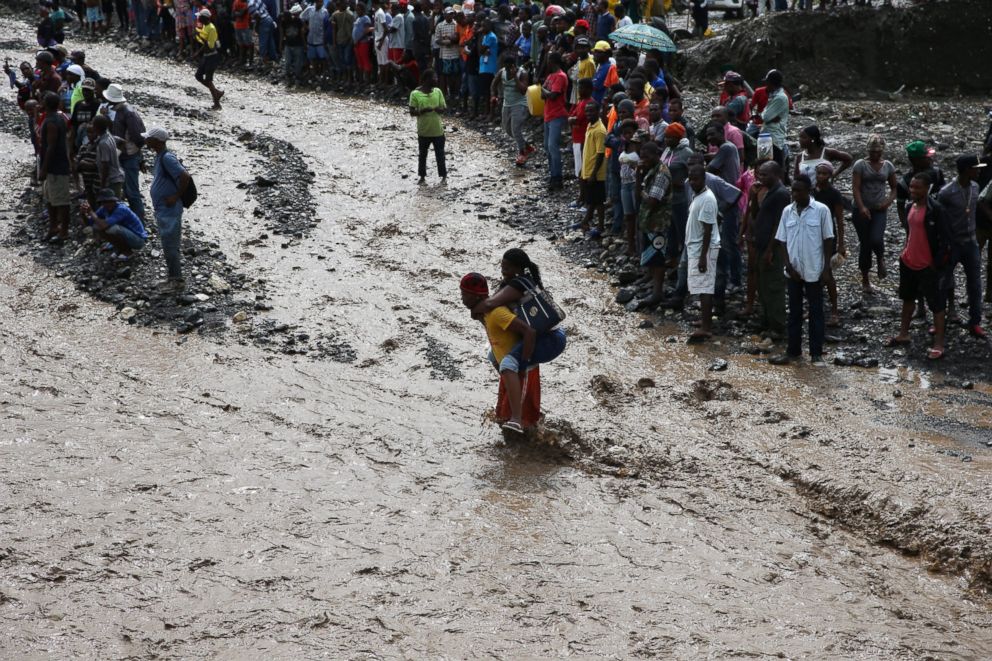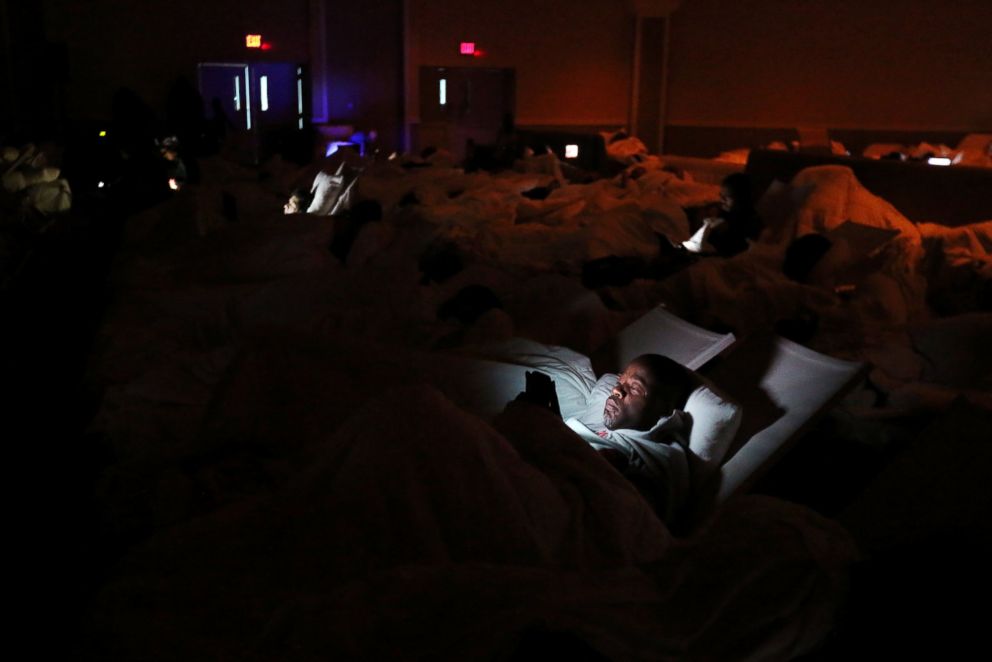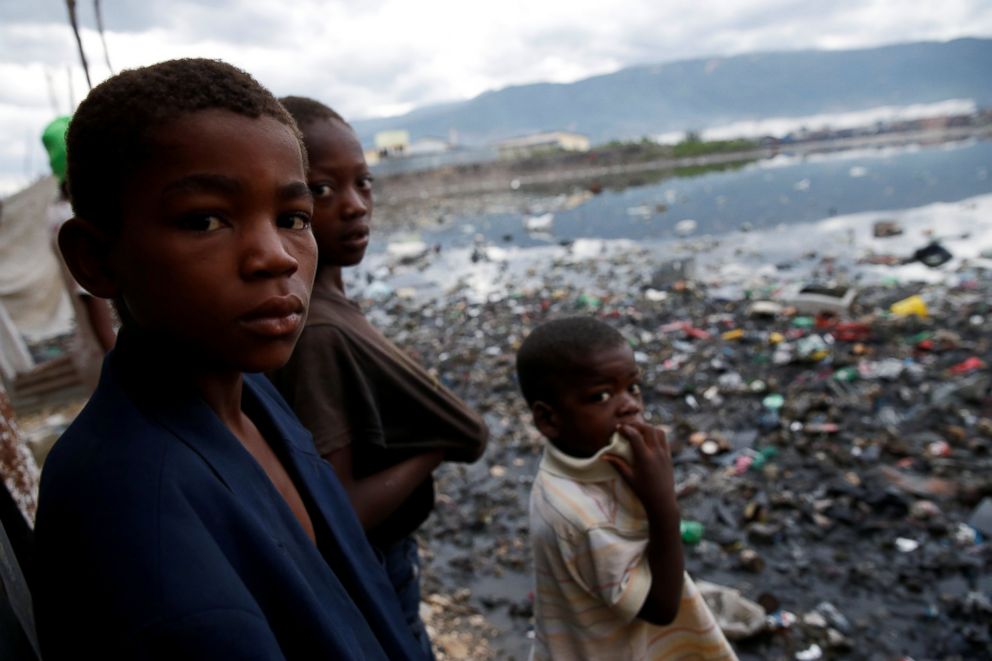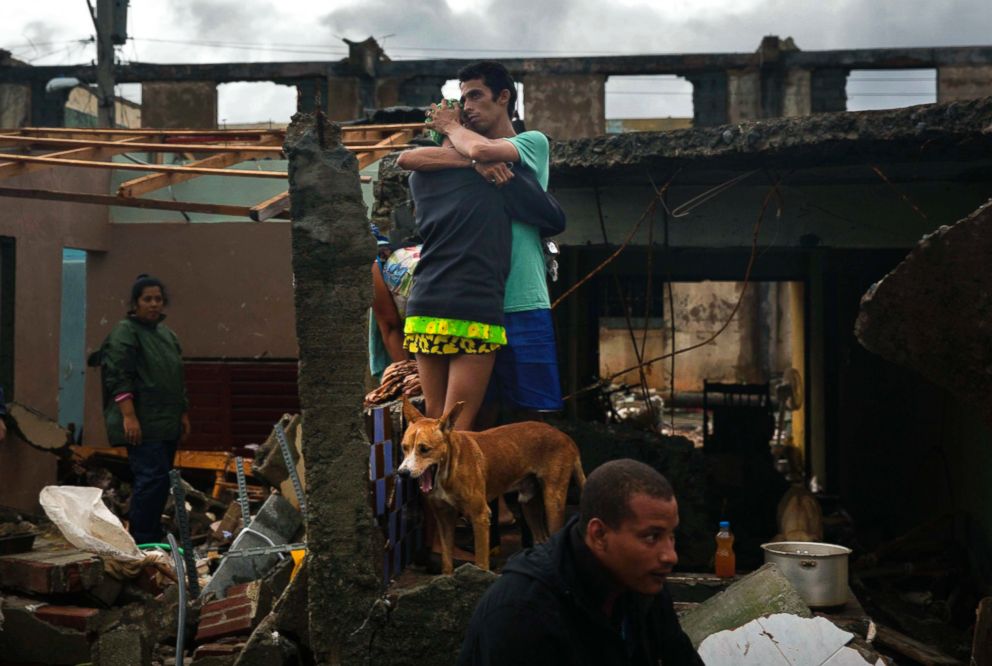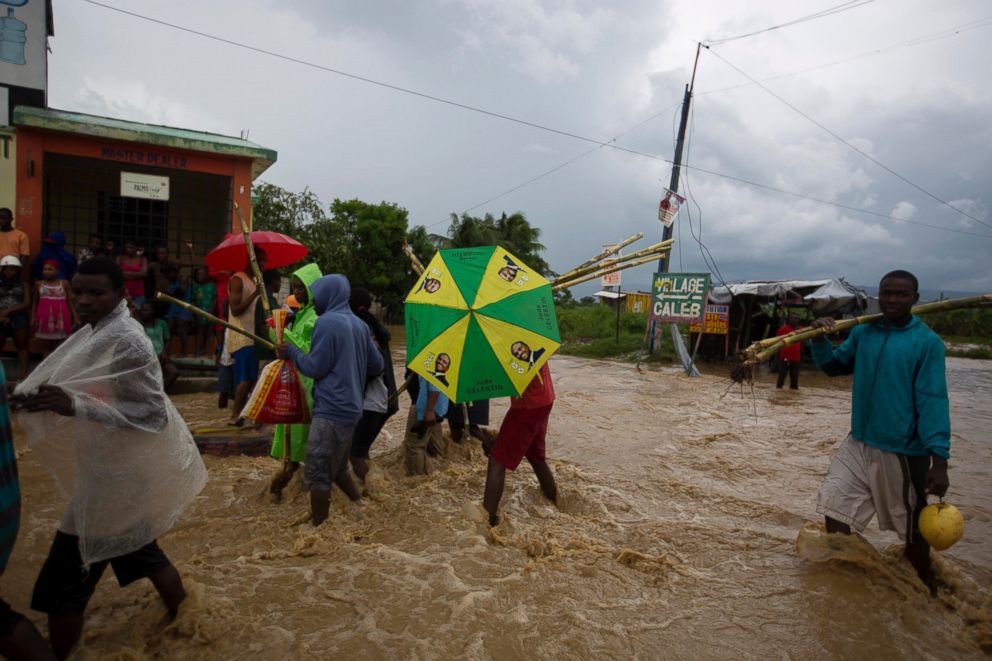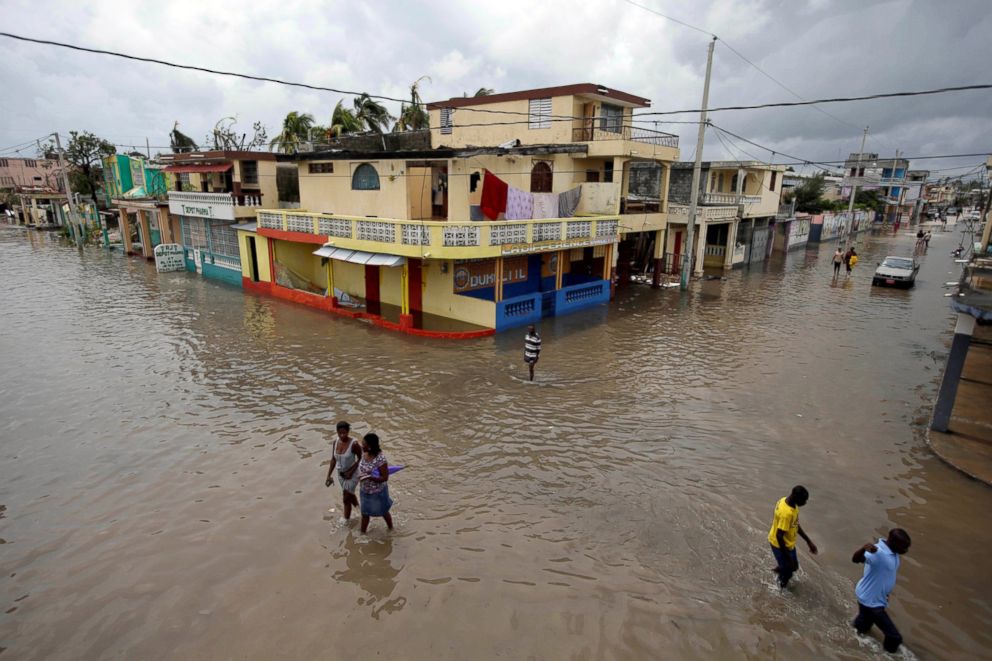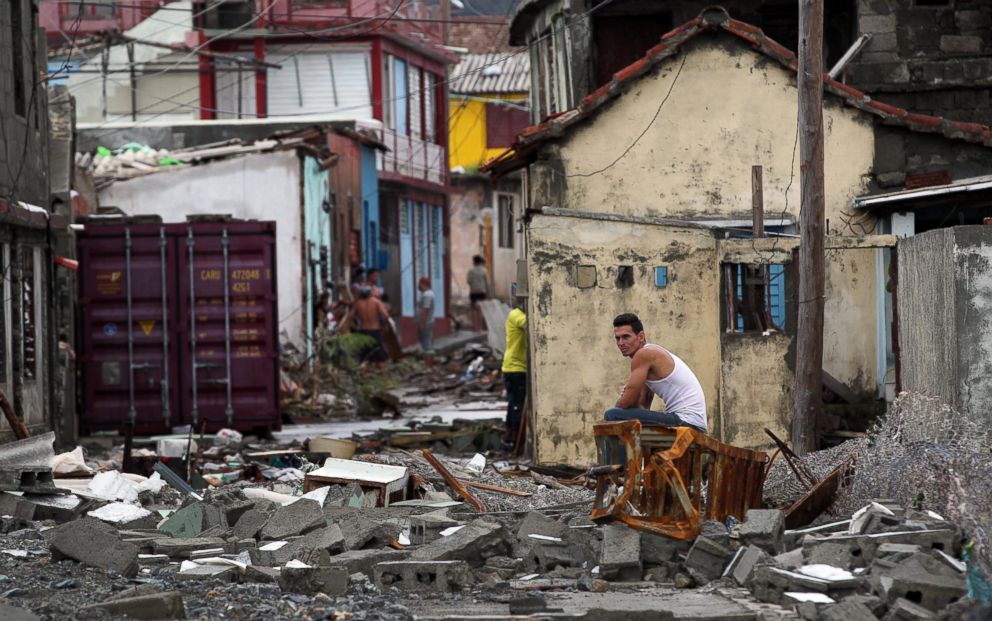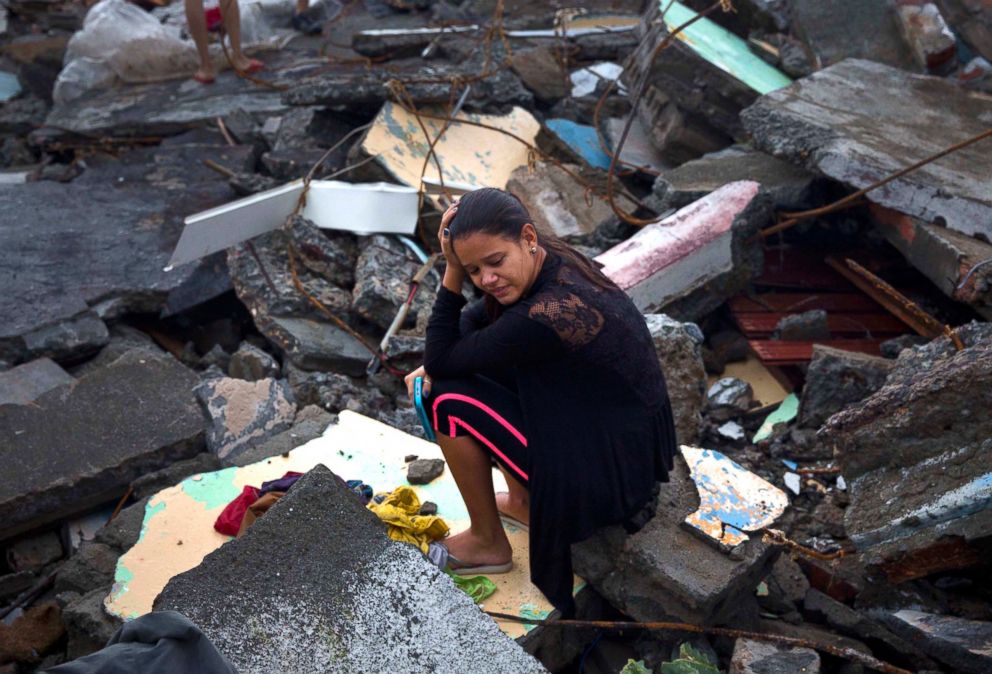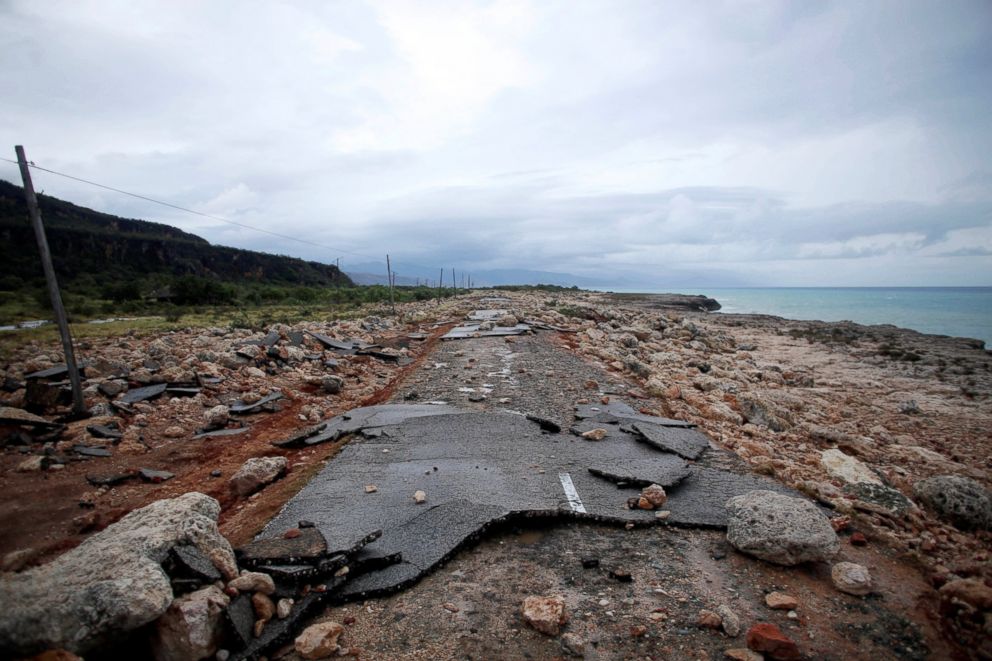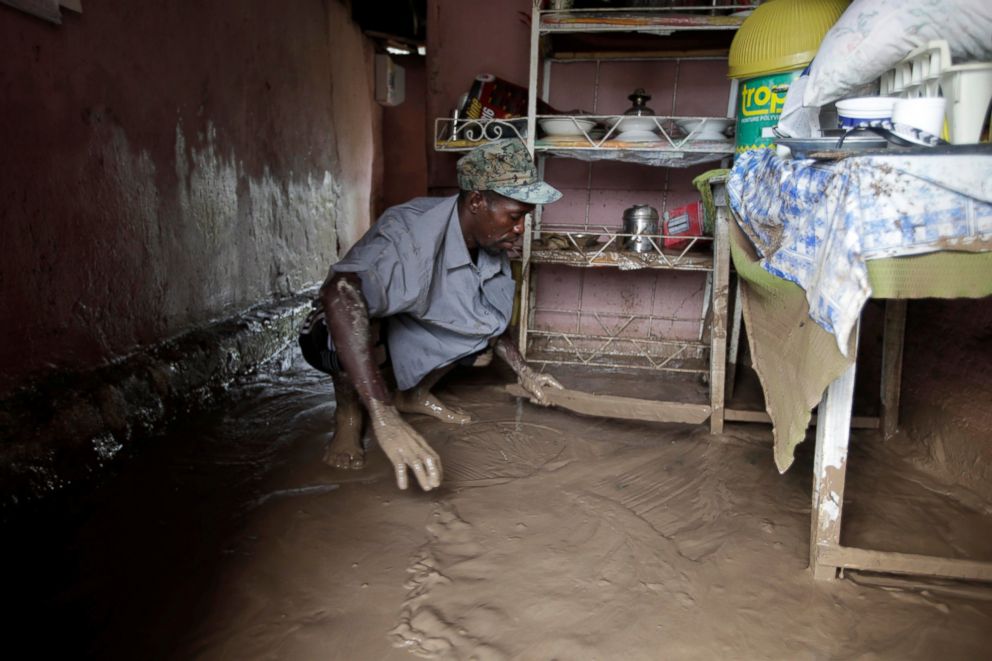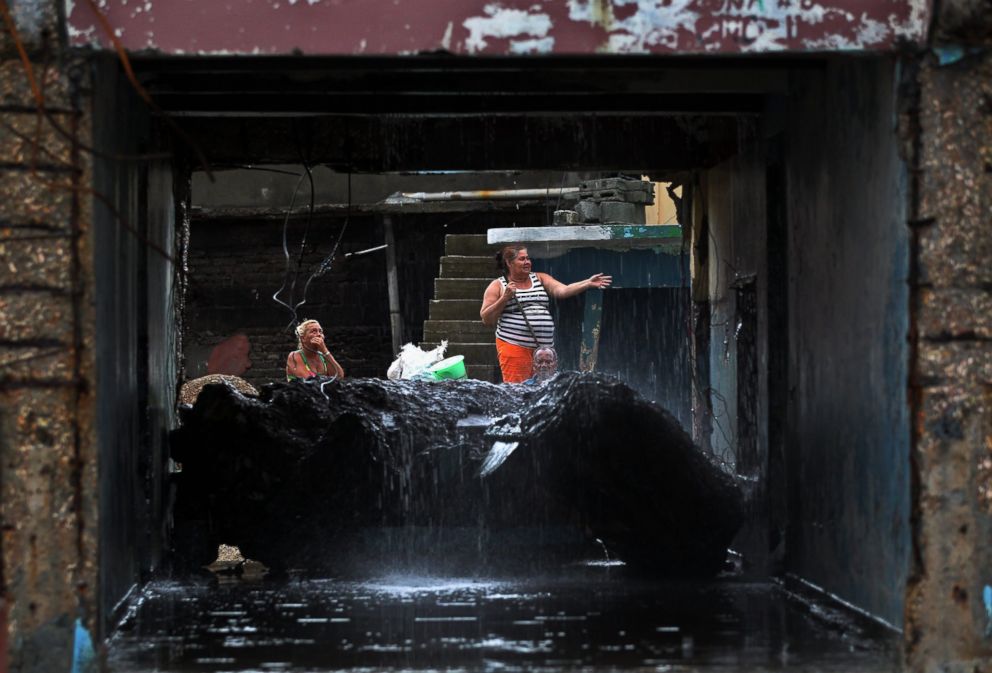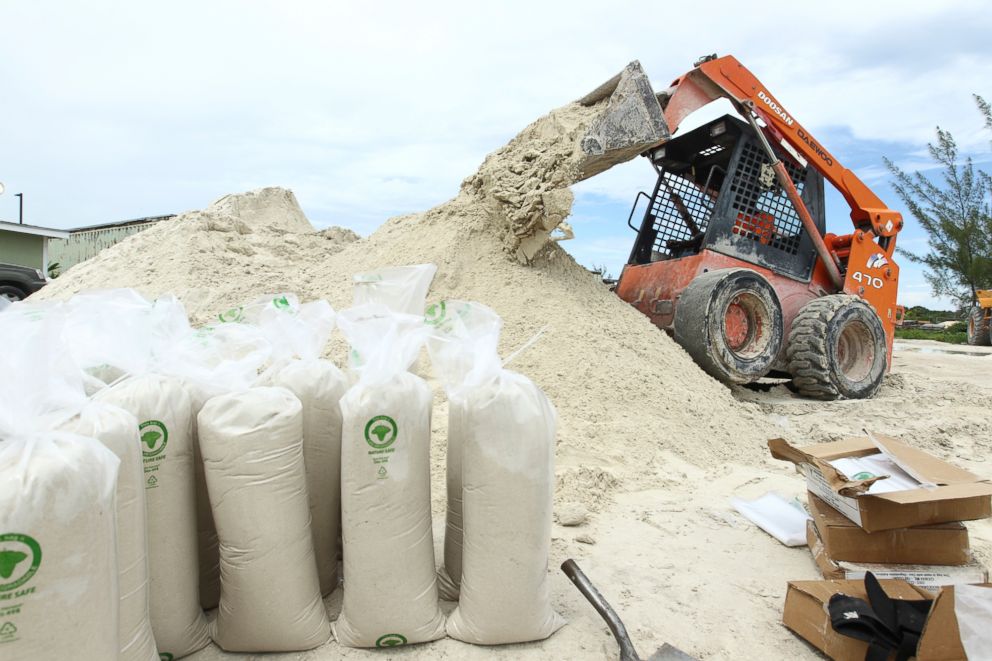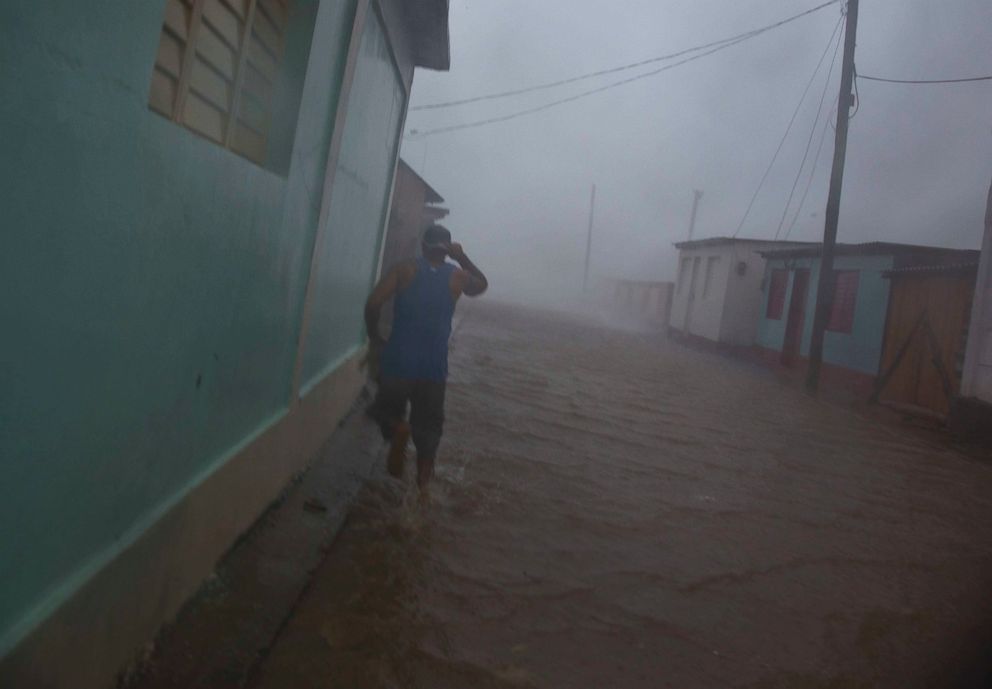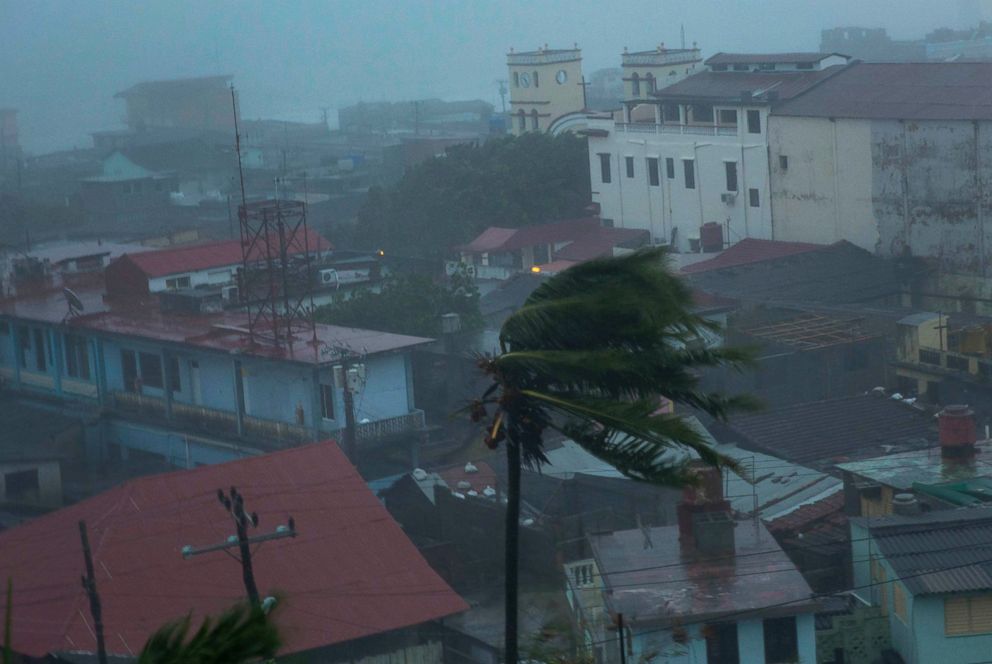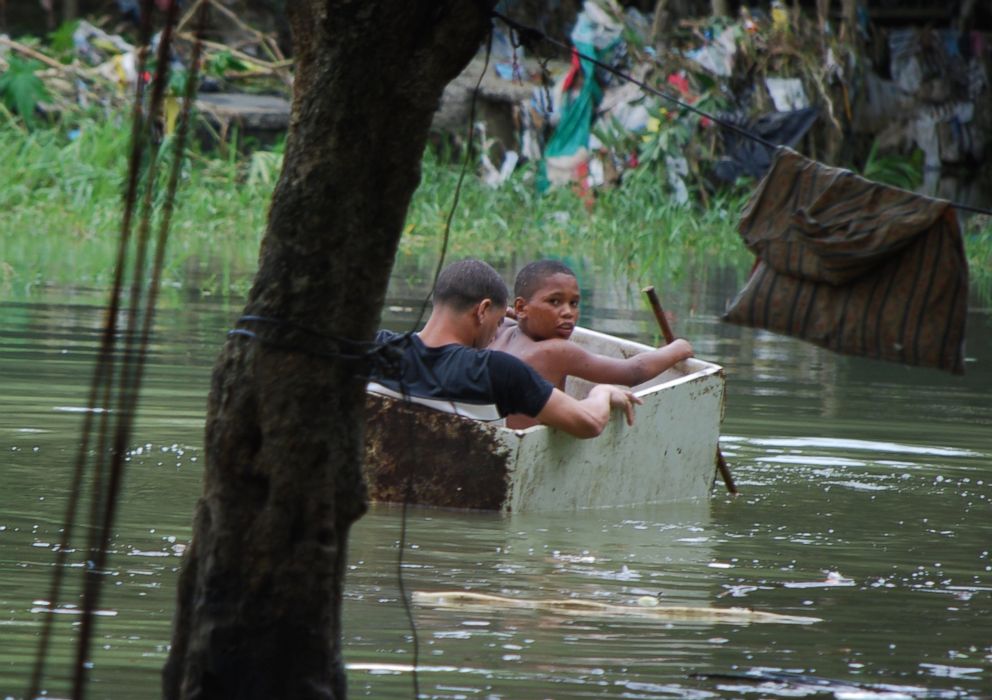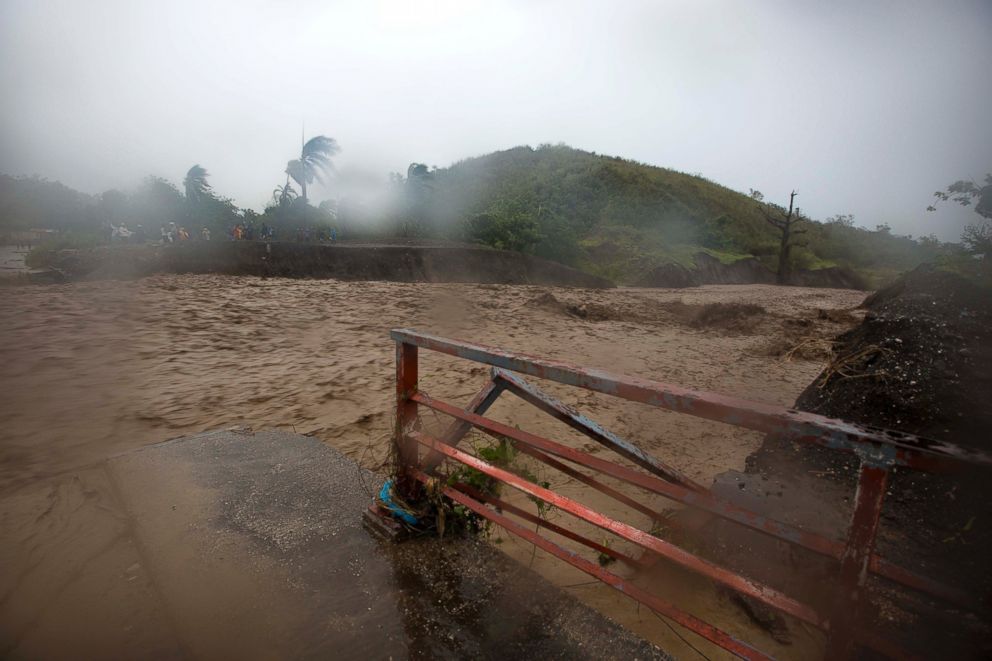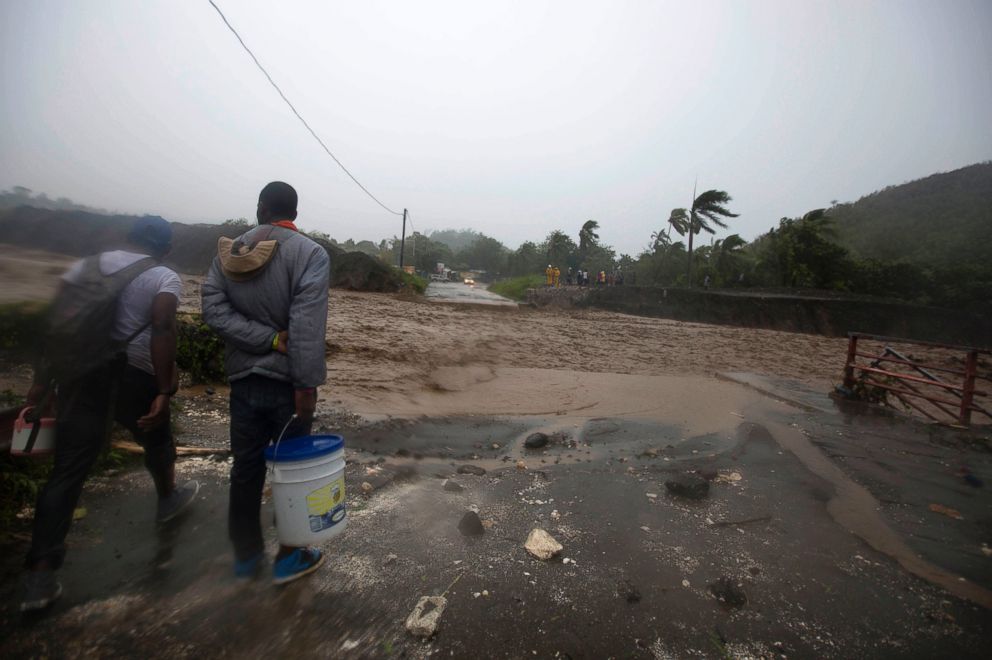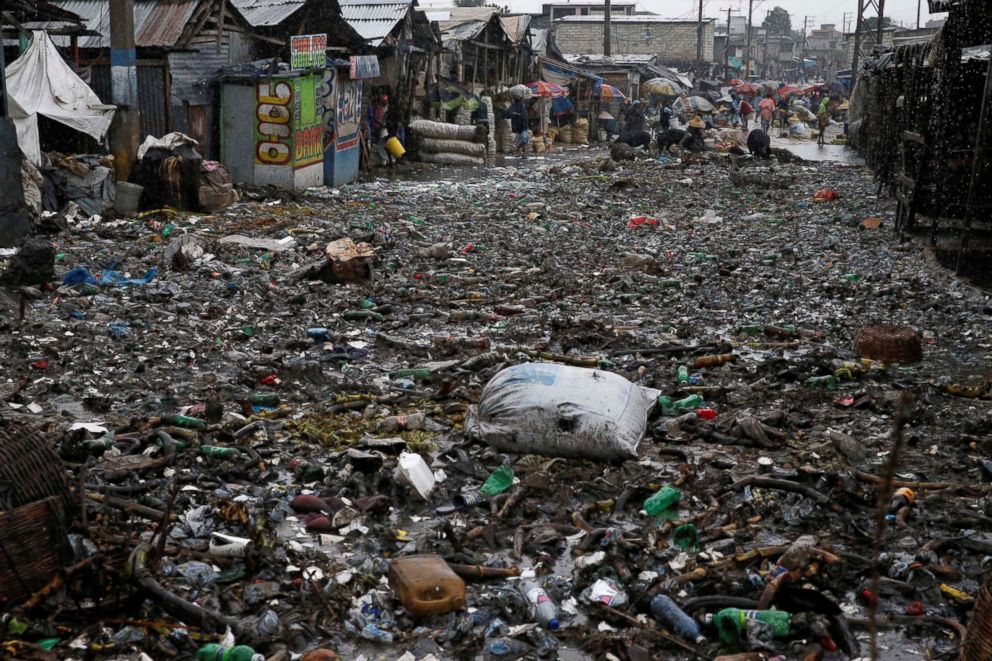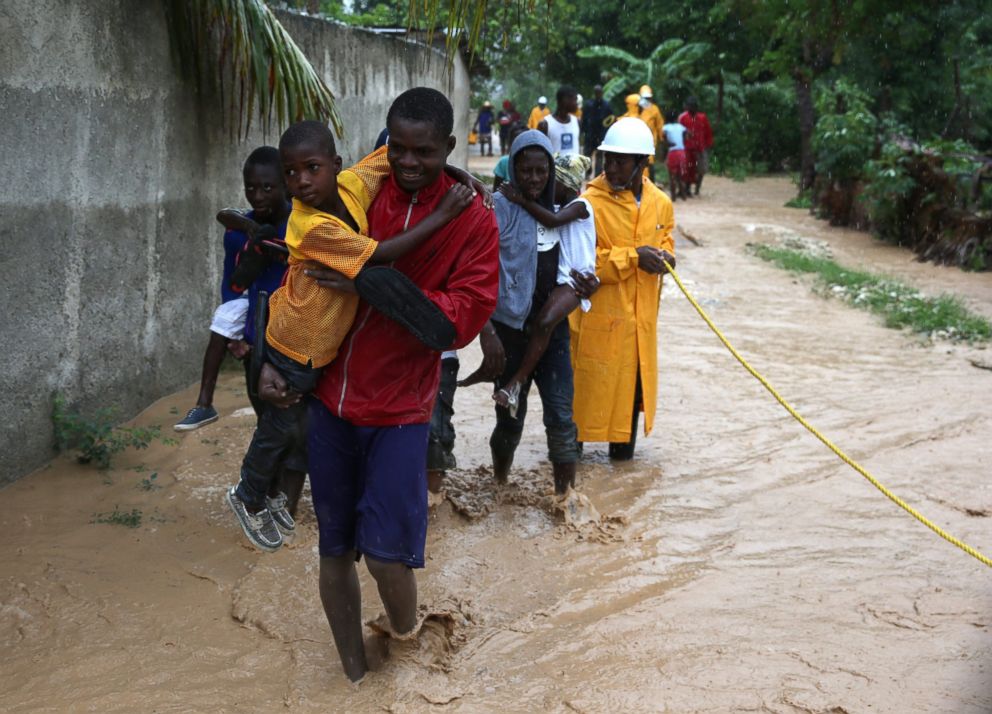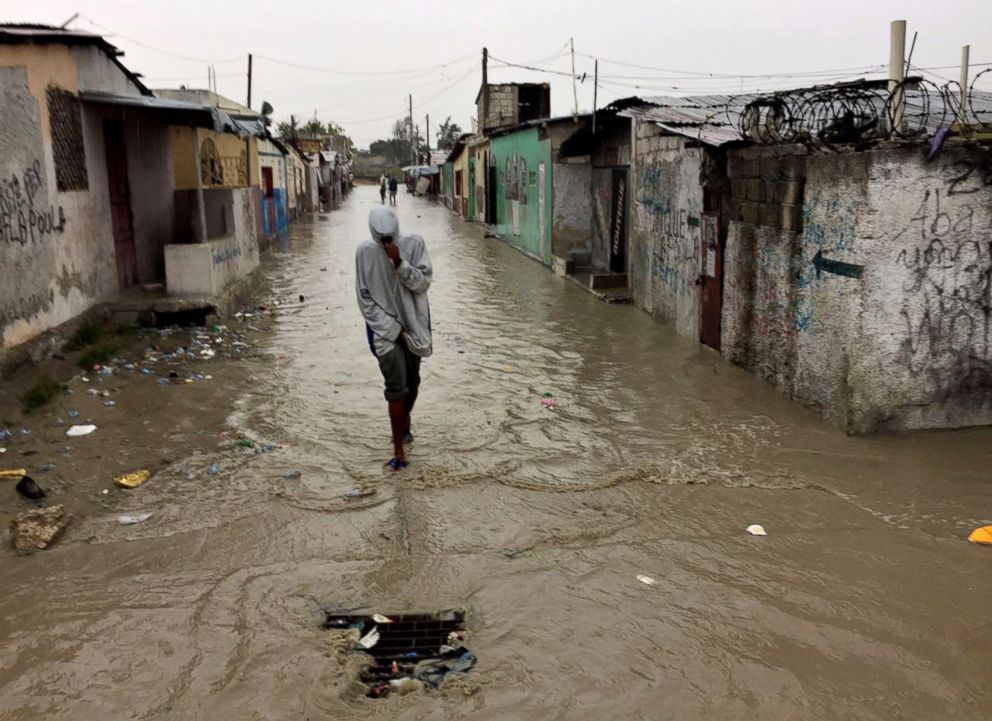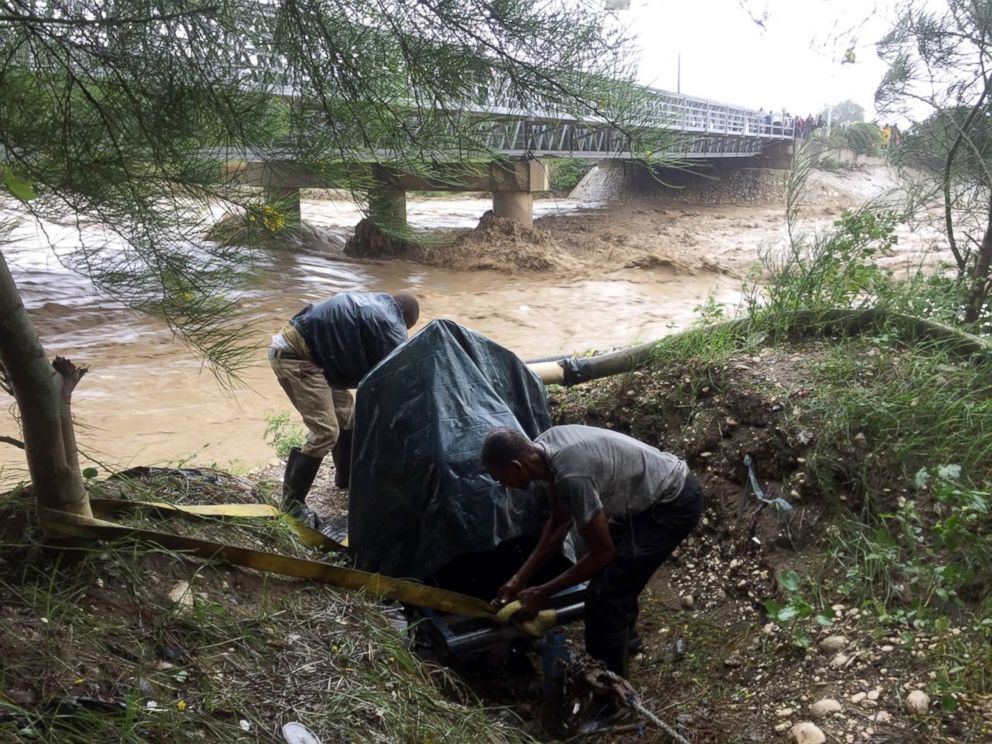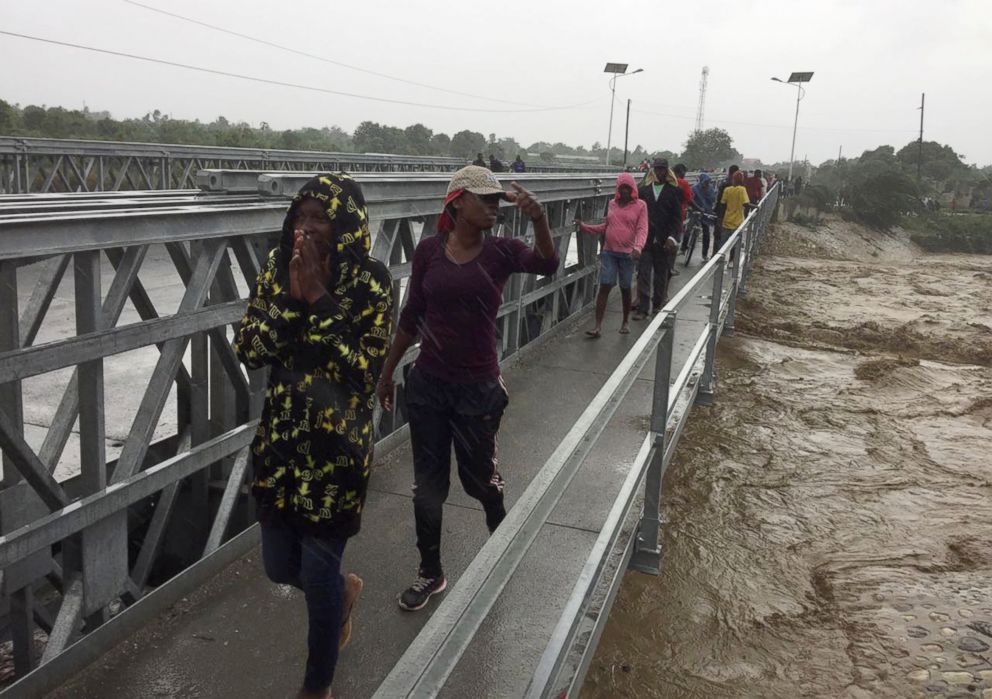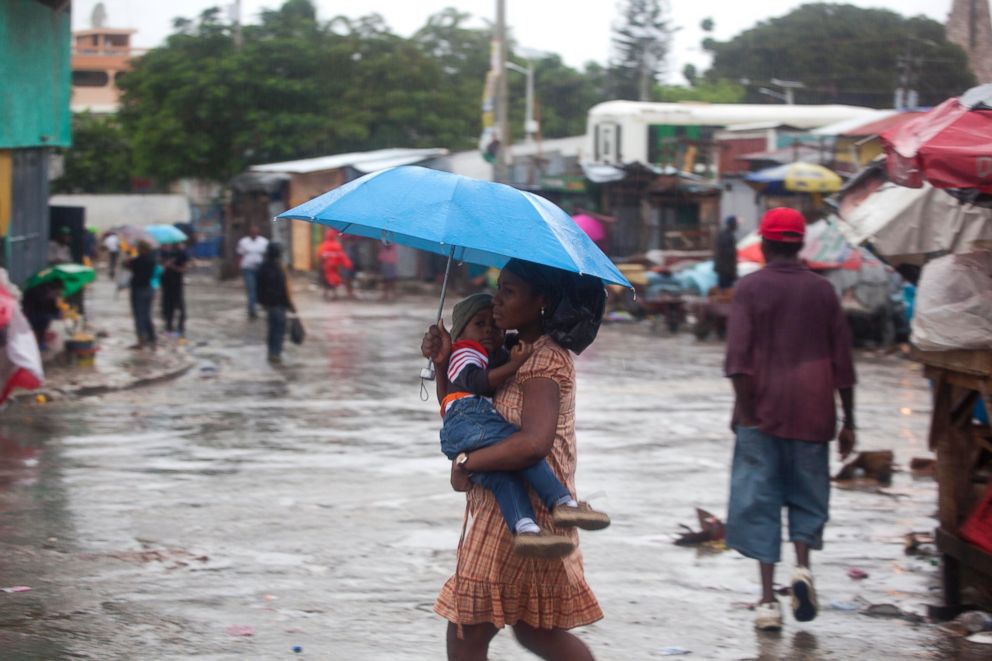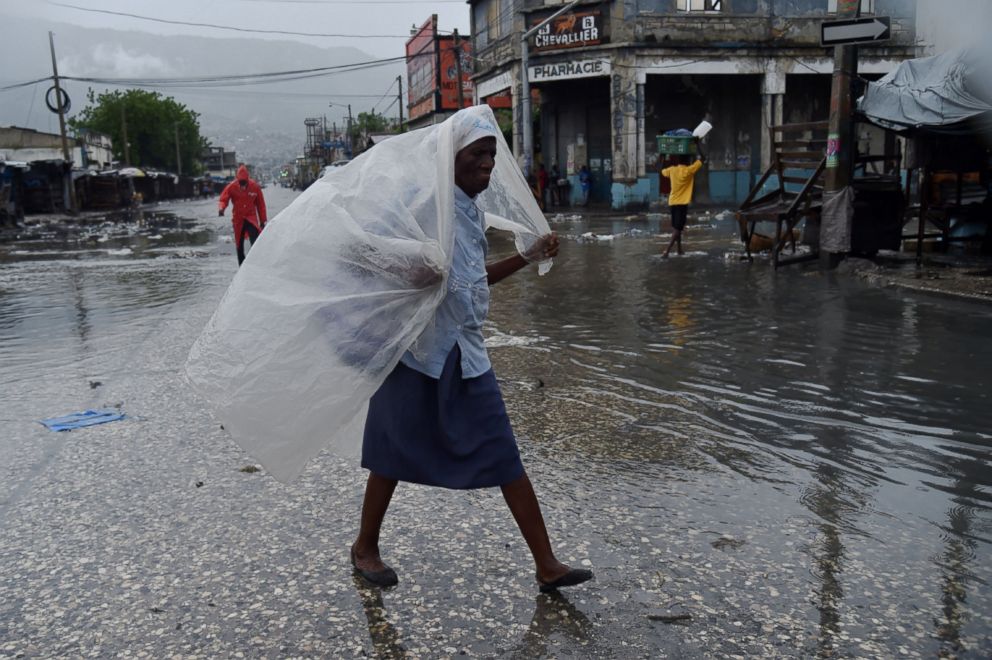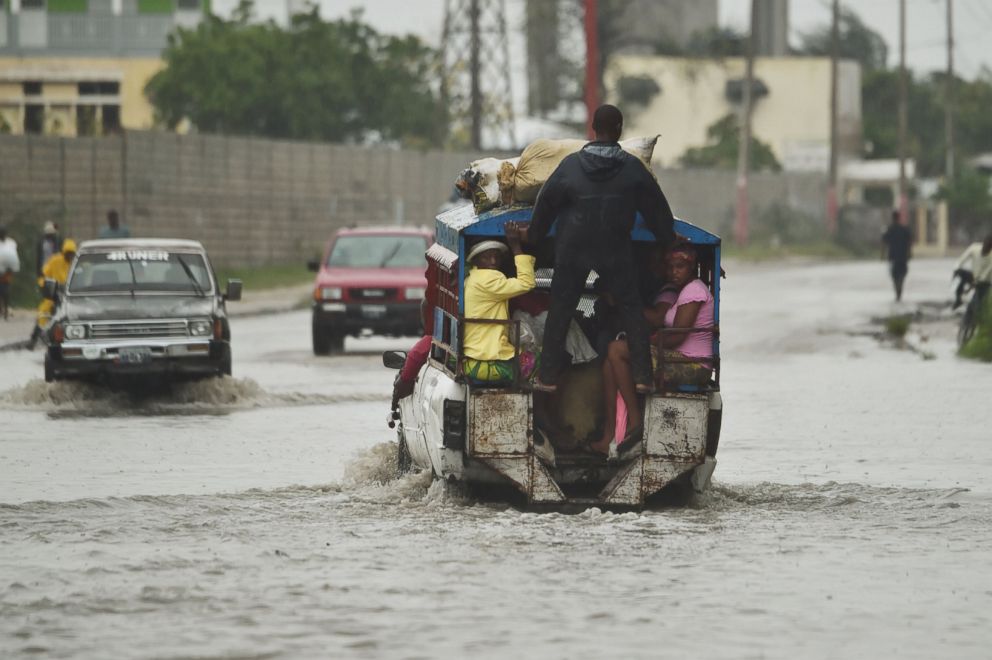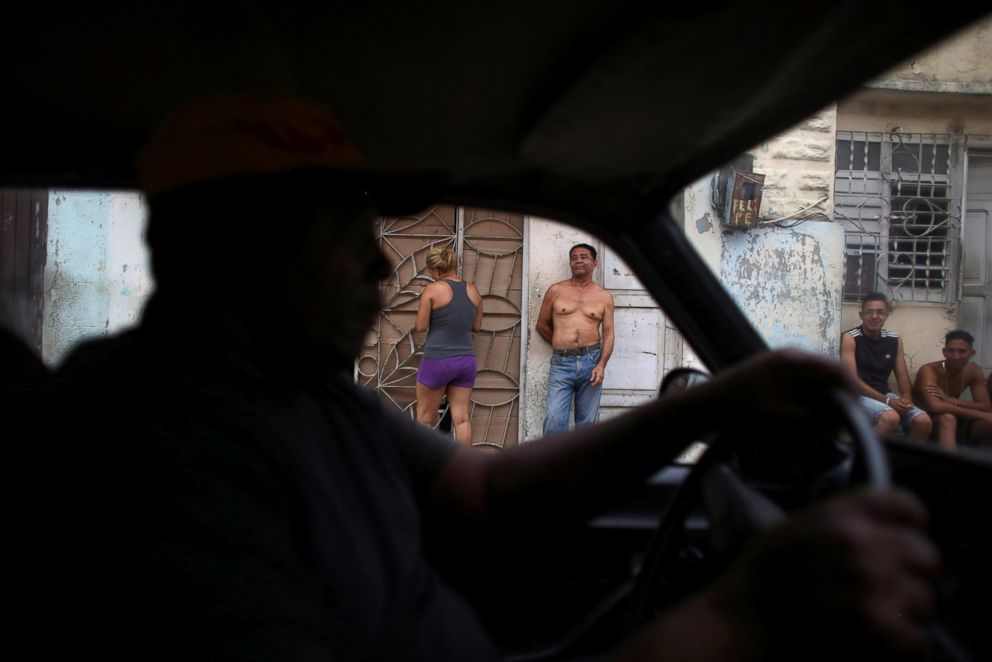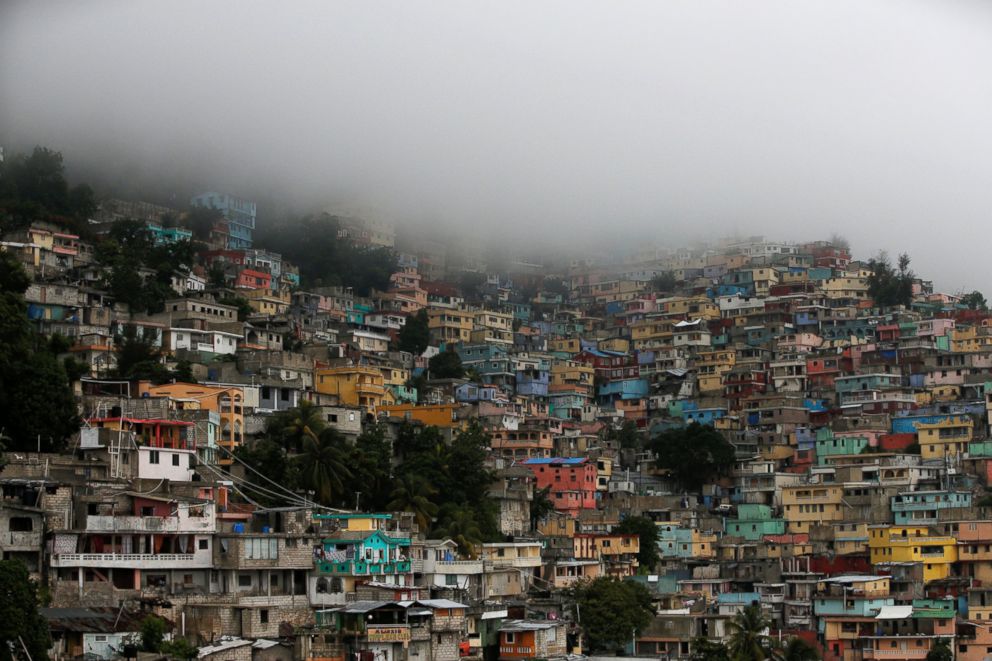More Than 120 Dead in Haiti From Hurricane Matthew
The full extent of the hurricane's catastrophic damage remains unclear.
— -- At least 122 people have died in Haiti as a result of Hurricane Matthew, which ripped through the country two days ago and left a trail of immense destruction, according to government officials.
Two people are missing and 91 people were injured in the storm, according to the director of Haiti’s Department of Civil Protection.
The full extent of the devastation is only now becoming apparent as officials from Haiti's civil protection agency and international workers continue to assess the damage.
Officials say the death toll is expected to rise, as aid workers are working to access villages in the southern part of the country that have been severely flooded.
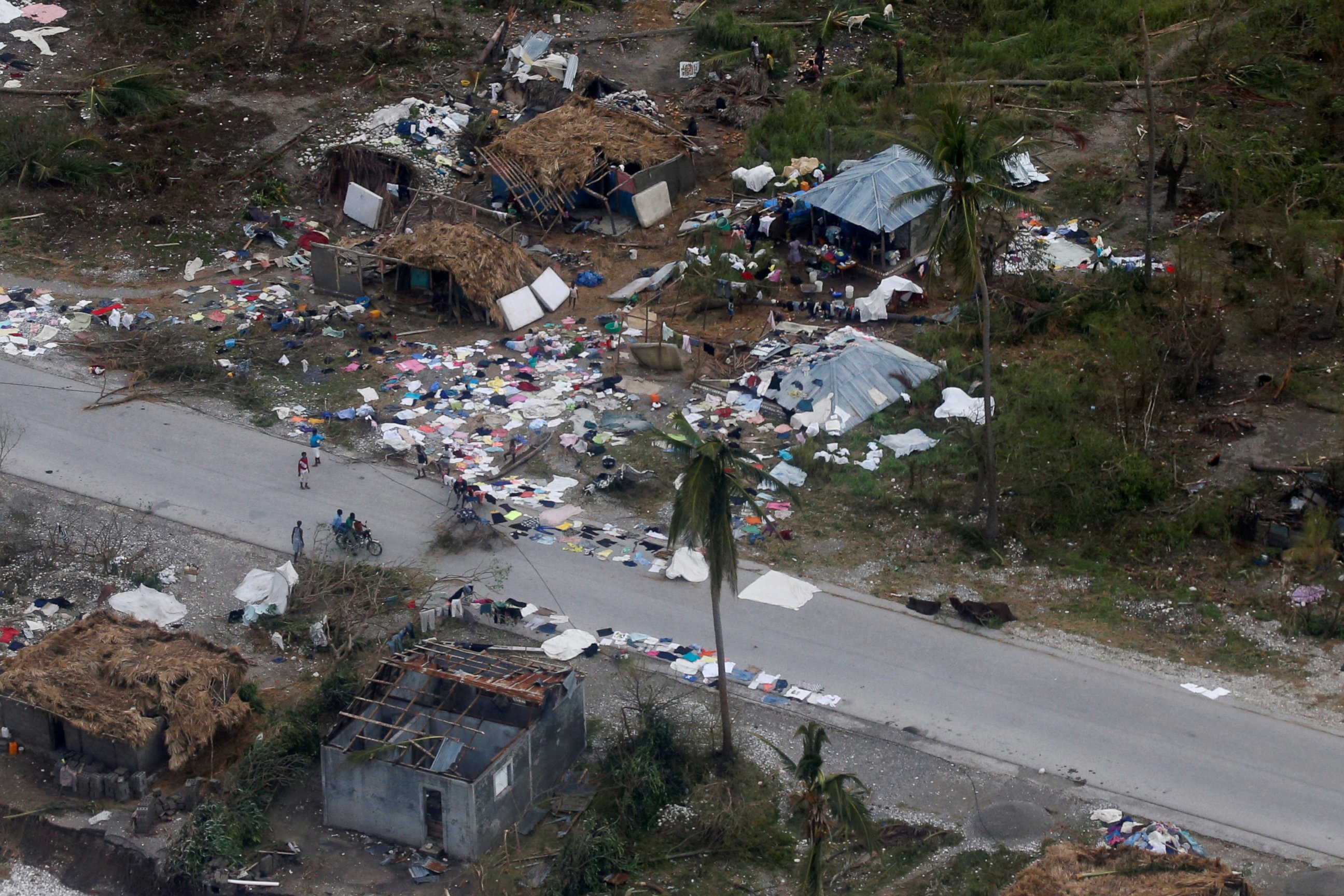
The Haitian Health Foundation, a Connecticut-based nongovernmental organization, told ABC News that a pilot who flew over the coastal city of Jeremie yesterday said, "It's wiped out. Barely 1 percent of houses are standing. The people are alive ... They survived. But soon they may starve. They're cut off."
Aerial photos that emerged a day after the hurricane revealed some of the devastation of the storm, which deluged southern Haiti.
More than 28,000 homes have been damaged so far, and 21,000 people are in shelters, according to the Haitian Interior Ministry.
Jean-Michel Vigreux, the Haiti director for the nonprofit group CARE, said in a statement that the southern part of Haiti "is now cut off from the rest of the country."
"We’re still assessing the impacts, but we know of floods, landslides and continuous heavy rains in some areas of the south. We also have heard of destroyed houses, streets and bridges, dead livestock and destroyed livelihoods," he added.
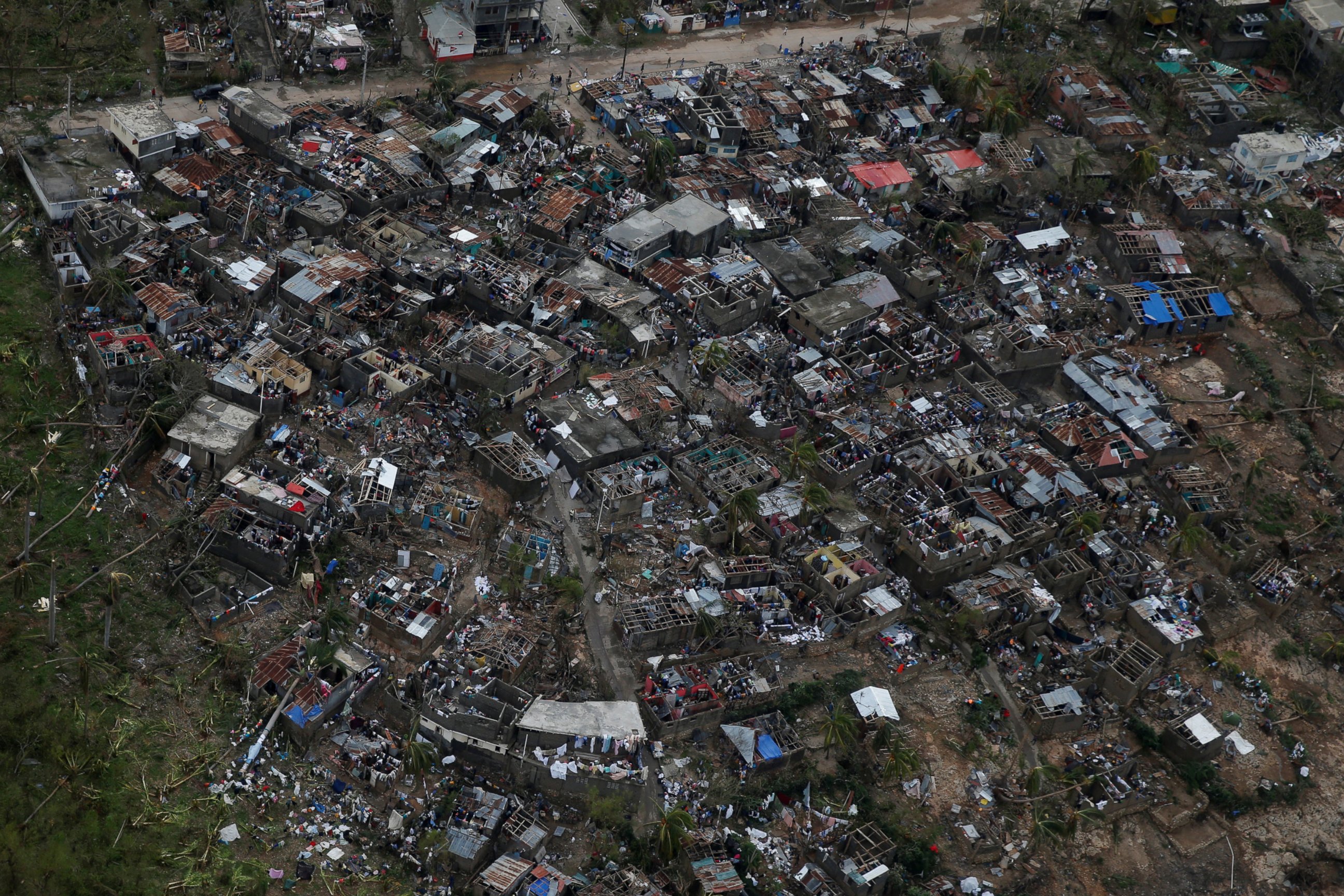
Antoine Louis, a farmer in Haiti's southern peninsula, told the Associated Press, "The floodwater took all the food we have in the house. Now we are starving and don't have anything to cook."
Haiti Devastated by Hurricane Matthew
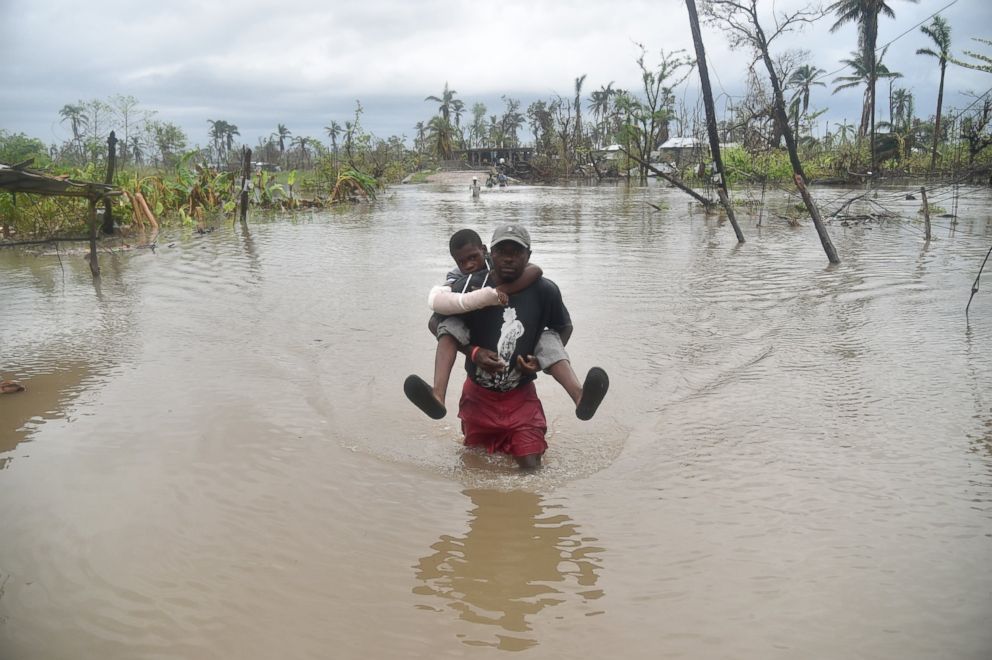
At least 350,000 people need immediate assistance, a spokesman for U.N. Secretary General Ban Ki-moon said in a statement yesterday, adding that the full extent of the damage remains unclear but U.N. groups are standing by to assist.
Mourad Wahba, the U.N.'s deputy special representative for Haiti, said in a statement, "Haiti is facing the largest humanitarian event witnessed since the earthquake six years ago," referring to a quake that left some 200,000 people dead.
Vigreux said that the areas hit hardest by Hurricane Matthew are some of the most vulnerable in the country, the poorest in the Americas, where the effects of the devastating 2010 earthquake are still palpable.
The U.S. military announced it is moving nine helicopters and 100 personnel to Haiti, starting today, to assist in the country's relief efforts.
Dr. Charles-Patrick Almazor, the chief medical officer in Haiti for Partners in Health, a medical organization focused on helping disadvantaged people around the world, is on the ground in Port-au-Prince. He said it has been nearly impossible for many people to get in contact with relatives and friends who live in the southern part of Haiti, leaving many fearing for the worst.
He added that he fears a surge in cholera and Zika could be possible in the weeks after the hurricane.
In a statement yesterday, Almazor said, "Though the storm has passed, experience tells us that the worst is yet to come."
The storm has also wreaked havoc on the country's politics. In the face of the devastation, officials were forced to indefinitely postpone a presidential election scheduled for Sunday.
